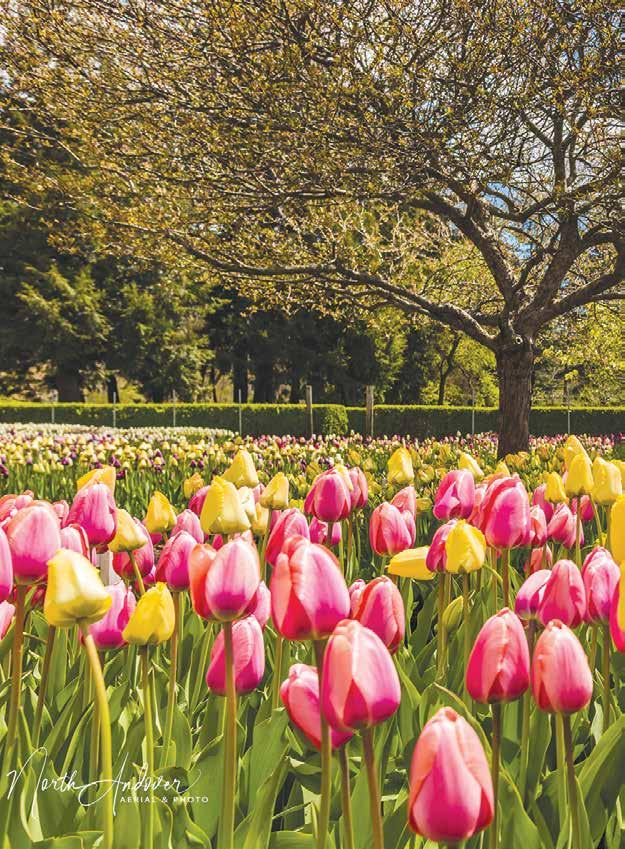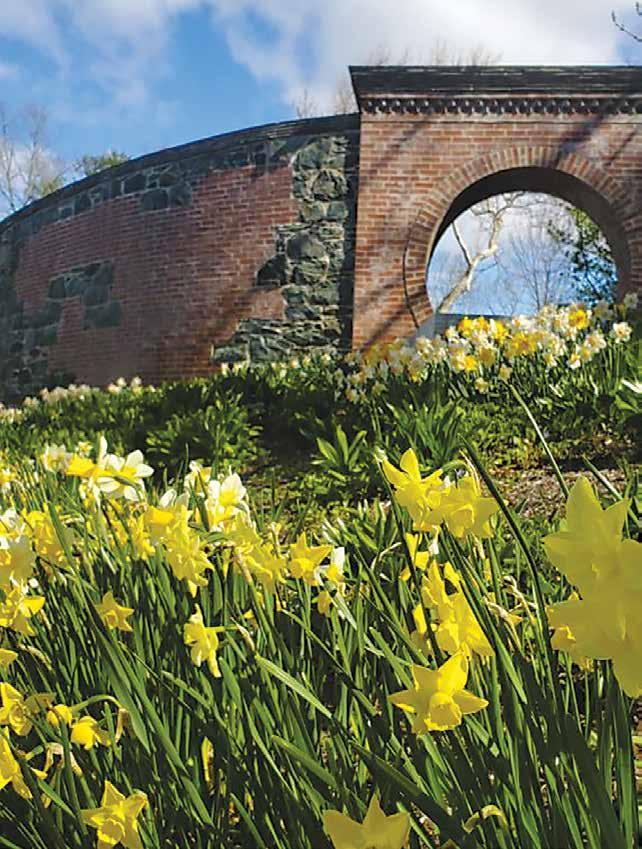Flower Power Protecting our pollinators





The Trustees has recently announced a $6 million investment to support renovations and expanded food access at its 56 community gardens across eight Boston neighborhoods. The anonymous grant provides a transformational opportunity for the gardens, which total more than 1,600 plots and feed nearly 8,000 people each year. “This generous grant not only allows us to respond to the enormous demand for more garden plots in the city, it improves the quality of life for Boston residents whose reliance on open space has been at the heart of our mission for more than 130 years,” said Interim President and CEO Nicie Panetta. “These gardens aren’t just food sources, they are community hubs that reflect the vibrant culture of their neighborhoods and where people gather in community to share not just the bounty of their harvests, but also the richness of their stories and so many special moments in their lives.” Funding from the grant will be enable much needed capital improvements and enhanced maintenance of existing gardens, as well as construction of potential new garden sites. Cultivation and expansion of the gardens in turn provides more access to green space, allows the food grown to reflect the culture of the community, and creates space for cross-cultural interactions and friendships. Hybrid programming—which currently serves 18,000 people annually—will be expanded, with workshops on gardening skill-building, health and mindfulness classes, art installations, concerts, and seasonal celebrations. “There are roughly 125,000 people who live within a quarter mile of one of our 56 community gardens,” said Trustees Vice President of Urban Outdoors Vidya Tikku. “Our goal is not simply to create an audience of people who have garden plots, but to invite all of the surrounding community to reap the benefits of these special spaces.”
This past fall, The Trustees was awarded a three-year grant from The Wildlife Conservation Society’s Climate Adaptation Fund to implement climate-smart silviculture practices to improve resilience and support the transition of the Acadian forest at its Notchview Reservation in Windsor. With more than 3,100 acres in western Massachusetts, Notchview provides key forest ecosystem functions including carbon sequestration, healthy soils, clean water, and wildlife habitat. Facing increasing temperatures and shifting rainfall patterns due to climate change, the impetus for future functionality of this ecosystem necessitates The Trustees to implement interventions to improve resilience and support the transformation from the spruce-fir forest to a more hardwood-dominated forest that will be suitable to the future climate. The grant will allow The Trustees to implement some of the practices identified in its 2019 Forest Stewardship Plan, created as a set of guidelines to improve the climate resiliency of its forests. Innovative techniques will be piloted, such as reducing deer browse of seedlings using slash walls and planting future climate-adapted
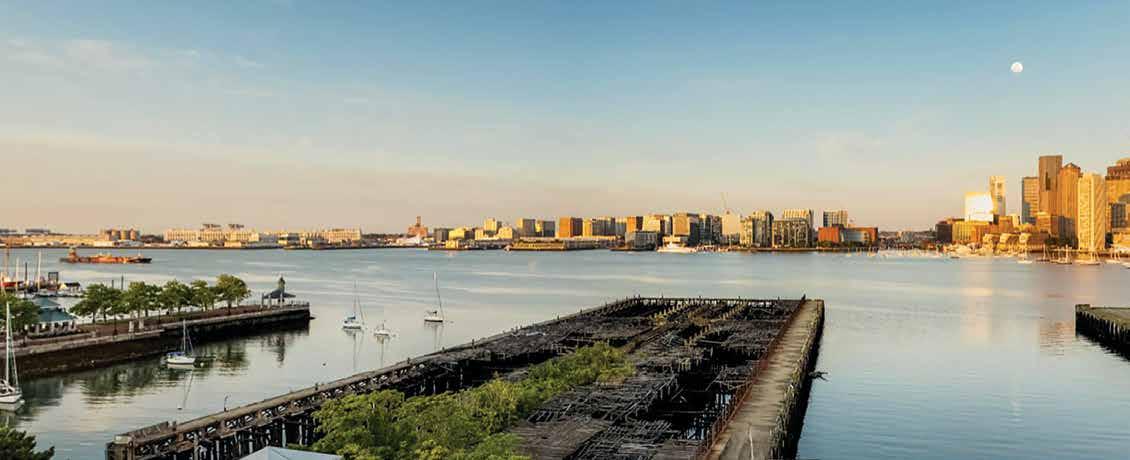

Piers Park III in East Boston—the Trustees’s first new park on the harborfront created as part of the organization’s Boston Waterfront Initiative, One Waterfront—was recently welcomed into the High Line Network as a new member project. In February, the Network welcomed 10 new members, including Piers Park III, into its community of nonprofit infrastructure reuse projects. The Trustees’ park is the only project in New England to earn this distinction. The High Line Network serves as a support system for people and organizations who are working to bring green spaces to their communities through the reuse of existing infrastructure. The group welcomes projects that center local communities, build civic connections, support environmental resilience, and foster equitable community development. “The bold vision for Piers Park III is inspired in part by many of our peers in the High Line Network,” said Nick Black, Managing Director for the Trustees Boston Waterfront Initiative. “We are excited to be a part of this impressive group of leaders in infrastructure reuse and for this
opportunity to learn from our peers around the country, while offering valuable insights from our own experiences in East Boston building an accessible park on Boston’s waterfront.” Parks already represented in the Network include many that have inspired the vision for Piers Park III, including the High Line, its namesake park in New York, NY, as well as Waterfront Seattle in Seattle, WA, Gathering Place in Tulsa, OK, and more. The peer-to-peer exchange offered through membership in the High Line Network will build upon the One Waterfront team’s ability to understand best practices and deliver a park that centers the East Boston community and climate resiliency. Piers Park III is currently in the community design phase, which began in 2021. The current design includes coastal community spaces, a salt marsh, a reclaimed rail line, gravel beach, coastal meadow, tide pool, fishing pier, and a kayak launch. Construction is expected to begin in 2024. For more information, visit thetrustees.org/onewaterfront.
tree seedlings. Although the existing forest at Notchview is currently withstanding shifts in climate, this grant provides the opportunity to establish species in the forest that will be able to handle the future climate as existing tree species and their seedlings are no longer able to withstand the climate conditions. Trustees ecologists will collaborate with UMass researchers to document the work and make it available for future researchers. “This project expands our climate adaptation work from the coast to our interior forests,” says Trustees Vice President of Conservation & Resilience Tom O’Shea. “What makes this project noteworthy is its innovative, forward-looking approach to building resilience in some of our most vulnerable forests in Massachusetts and the region, as well as the opportunity to showcase climate adaptation interventions in a forest context.” The Trustees looks forward to providing updates on this project’s progress and learnings with other forest landowners and managers, as well as with members and visitors, in the months and years to come.
Hike Trustees is our free monthly challenge to hike and explore Trustees reservations throughout the Commonwealth. We raise our hiking poles in salute to our 2022 Hike Trustees Challenge category leaders! Their accomplishments are inspiring:


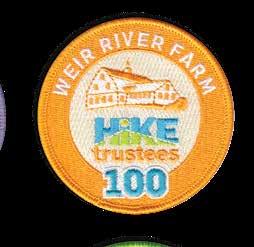

MILES HIKED LEADER
jechnojaba 1480.32 miles hiked
Ready to sign up for the 2023 Hike Trustees Challenge? Learn more and sign up at thetrustees.org/hiketrustees. And join the more than 10,000 people like you in our Trustees Hikers Facebook Group to get pointers and hear about favorite places to
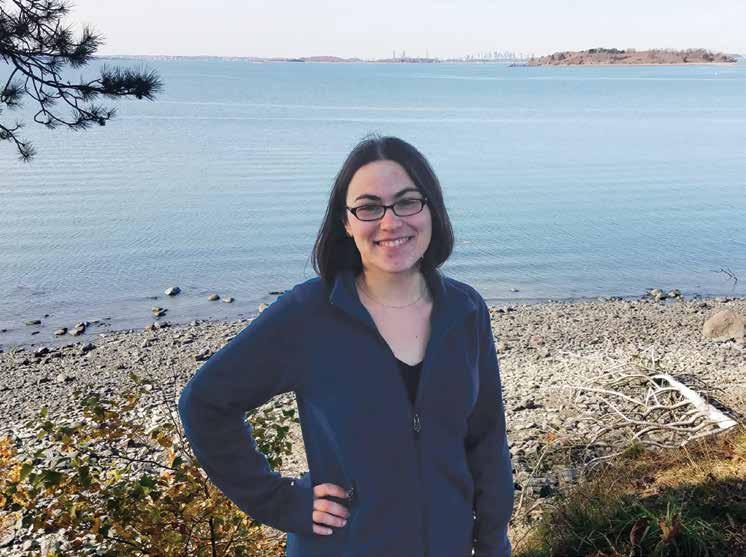

HIKES TAKEN LEADER
jechnojaba 623 hikes taken
PLACES VISITED LEADERS (tied)
Greathikes & ForeverHiker 120 places visited
As Emily Dickinson so perfectly captures, “when March is scarcely here” we are treated to that clear light and those blue skies that only Spring can bring. It is in our human nature to feel this change of light as a lifting of the spirit and a curiosity about all the precious life being renewed around us each day.
On our fields and meadows, Trustees ecologists are bringing hope to precious species critical to our ability to maintain essential biodiversity: our pollinators. As you will read here, our ecologists are putting into action a four-year plan at World’s End, in partnership with the USDA Natural Resources Conservation Service, to actively improve the habitat for pollinators by removing invasive species and planting native species across that treasured landscape. This is just one of many such pollinator projects across the state.
There is new life in our historic houses, too. You’ll see us throwing open the doors and welcoming you to innovative tours and programs. Conservation work on these places—which involves meticulous research and loving restoration of everything from furniture to windows, paint, and wallpaper—has resulted in fresh and inviting gardens and interiors. Several houses will offer the opportunity to see key interior spaces for the first time—the “oh so 1960s” Folly at Field Farm will be holding tours soon, and the houses at both Long Hill and Stevens-Coolidge House & Gardens (which opened for the first time in just the last couple of years) are showcasing new rooms and stories.
It is in our nature to be storytellers and some of our stories might surprise you. In this and upcoming issues of Special Places, we’ll be sharing a series of “In Our Nature” articles with you. Here you’ll find some fascinating peeks into our work to nurture creativity, strengthen community, encourage resilience, and kindle discovery—like those in this issue, where you’ll meet our agroecologist, Alejandro Brambila, and discover the whimsical ceramic tiles of Carol Janeway that are on display at Field Farm.
Please join us soon for a tour, an event, or just a quiet ramble with the birds of spring singing from the trees as that spring light filters through new leaves above. As ever, you have my heartfelt gratitude for your membership and support of the Trustees mission. I know I speak for the whole Trustees team when I say that we can’t wait to see you at our special places!
Warmly, Nicie Panetta Interim President & CEO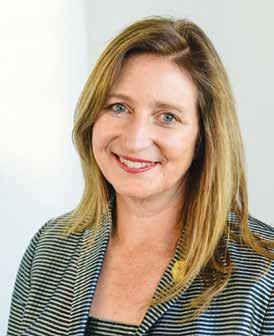
Nestled along the coast of Hingham, World’s End’s 251 acres are lined with Frederick Law Olmsted-designed carriage paths that lead visitors through stunning and diverse ecosystems. The habitats at World’s End make it even more the unique wonder that it is—from the cultural grasslands and oak-hickory forest to the maritime juniper woodland, salt marsh, shrub swamp and coastal beaches, the area is home to many important species that add to World’s End’s natural beauty.

Over time, non-native invasive species and certain woody species, shrubs, and vines have become dominant in the many fields at World’s End, negatively impacting the plants and habitat for native conditions that native pollinators rely on. To improve habitat for these pollinators, grassland birds, and other native species, The Trustees has undertaken a multi-year pollinator habitat improvement project across the reservation’s existing grassland and field habitats. Now in its second of four years, the project was developed in partnership with the USDA Natural Resources Conservation Service with guidance from the Xerces Society for Invertebrate Conservation.
Because native insects, including pollinators, are currently faced with a barrage of threats including habitat loss, pesticide use, non-native species, deer overabundance, and climate change, The Trustees—at World’s End and many other reservations—actively works to reduce threats and improve habitats for our native species. In the past year, for example, The Trustees collaborated with the National Park Service (NPS) on a volunteer effort at World’s End in honor of the 50th Anniversary of the Boston Harbor Islands.
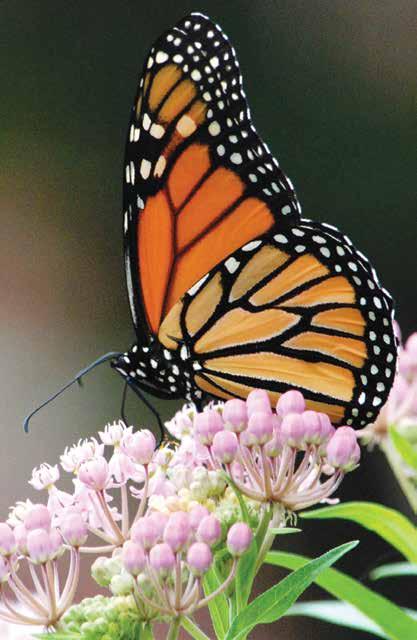
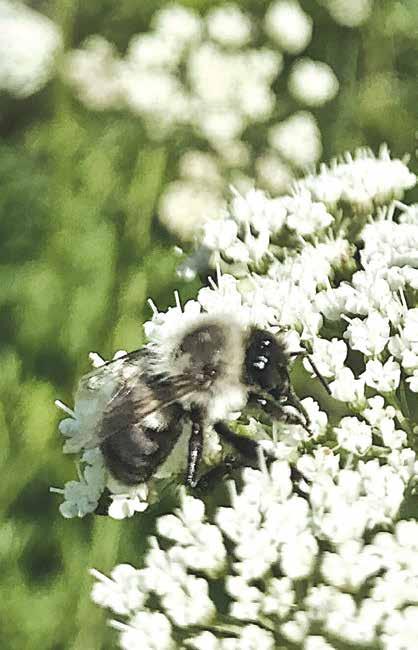
The multi-year project includes both the development and enactment of a sitespecific conservation plan outlining actions necessary for the improvement, restoration, enhancement, or expansion of flower-rich habitat that supports native pollinators such as bees, butterflies, birds, and other wildlife. This process began with the evaluation of the existing conditions, uses, and options for improvement to each of World’s End’s 20 fields.
Hayfields are being enhanced by adding forage-friendly legumes that will increase floral resources for pollinators while also supporting hay growth. Fields where invasive and undesirable woody species are found, threatening the longevity and sustainability of new wildflower meadows, are being treated with a targeted herbicide. In other fields that are specifically managed for pollinator habitat, a similar method is being used alongside the creation of pollinator-friendly strips of vegetation.
By making these changes, Trustees ecologists can address existing habitat
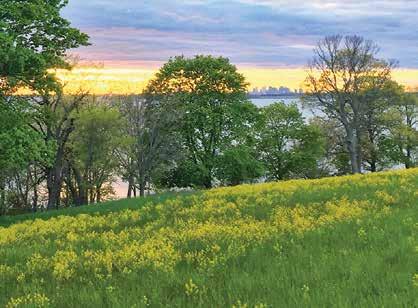
deficiencies through the provision of a consistent source of nectar and pollen throughout the season. The plantings will also provide more butterfly host plants, as well as structure for nest sites and cover. Increased wildflower habitat brings with it an increase in the overall abundance of insects, which in turn benefits grassland birds, songbirds, and other insectivores (animals that feed solely on insects).
Once the fields are cleared of undesirable vegetation and planting begins, a no-till seed drill will be used to plant the native wildflowers and grasses. This drill allows seeding into existing healthy and helpful vegetation and into prepared seed beds. When the fields are ready, planting will happen in the fall in order to guarantee increased germination success. But, while we all want to see this transformation happen overnight, it may take a year or two before some of the wildflowers bloom in abundance, as the small seeds need time to grow into mature plants.
Field management is an ongoing process and the pollinator enhancement plan also includes carefully considered management practices for continuous review and implementation of meadow and wildflower habitat. Ongoing control of invasive species and of non-native species that are overly aggressive are an important part of maintaining the diverse meadow plant communities Trustees ecologists are creating.
The Trustees has undertaken a multi-year pollinator habitat improvement project across the reservation’s existing grassland and field habitats.
occurs when pollen is moved within flowers or carried from flower to flower by pollinating animals, such as:
The Massachusetts Butterfly Club has documented 50 species of butterflies that inhabit World’s End, including monarchs, red admirals, black swallowtails, pearl crescents, and the rare juniper hairstreak.
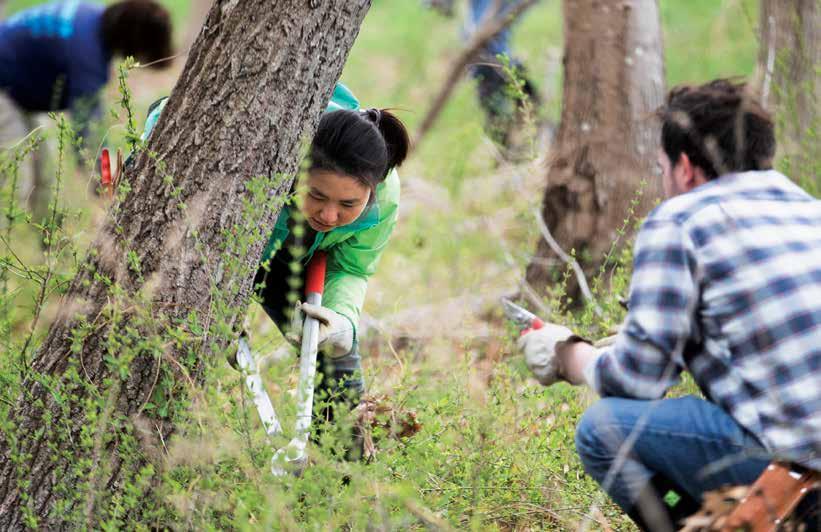
These large bees are a favorite to watch! Massachusetts is home to seven species of bumblebees. Look for differences in color patterns and sizes.
When we think of bees, we often think of honeybees (which, surprisingly, aren’t native to the Bay State). Massachusetts is home to many species of bees however, including sweat bees, mason bees, fly mimicking bees, and more.
You can tell wasps from bees by the shape of their bodies. Wasps are slimmer, have narrow waists, and have thinner legs than bees. While you may not think of them as pollinators in the same way that you think of bees, wasps are still important pollinators for our plants. In addition to the critters mentioned above, beetles, flies, moths, birds, and bats are also pollinators.
Maintaining pollinator habitat at World’s End is an everyday task for Trustees stewards, ecologists, and you, our visitors. As we prepare to welcome these species back to World’s End in abundance, Trustees teams will be on the lookout for the return of any of the invasive species we are seeing now in order to stop their spread before they can cause damage to the restored ecosystem.
During your visits, we hope you will keep your eyes out for some of the many
different pollinators that call World’s End home. As they enjoy these fields more carefully catered to their important job of pollinating, remember to leave no trace, keep your distance, and practice quiet observation. These creatures are helping us to maintain the beautiful places like World’s End that we are so lucky to enjoy.
We can’t wait to share these beautiful wildflower fields with you, and hope you enjoy spotting the progress at World’s End on your next visit.

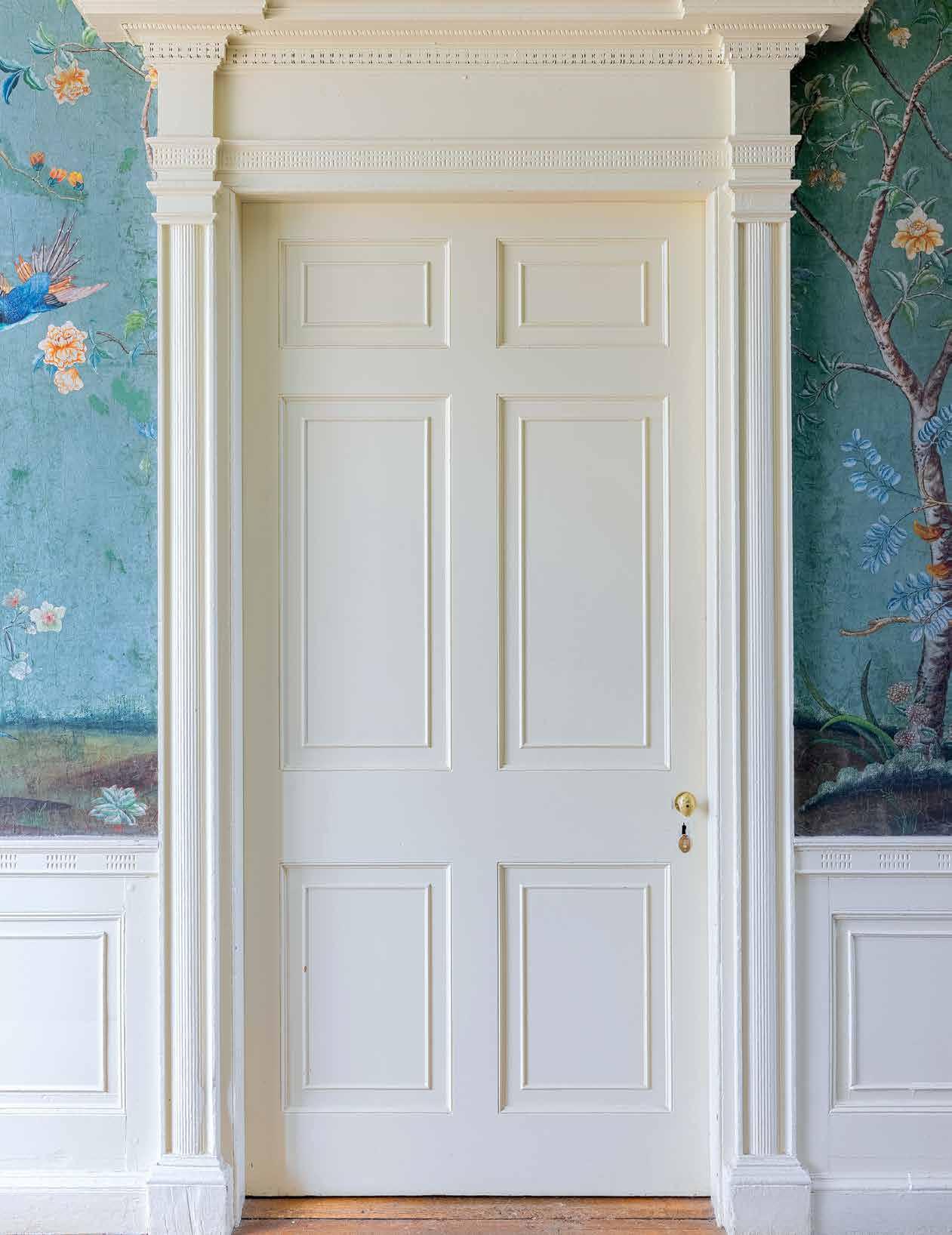
The Trustees cares for a variety of extraordinary historic houses and buildings among its 120-plus reservations, including seven National Historic Landmarks and four more on the National Register of Historic Places. Often set among spectacular landscapes, Trustees historic houses showcase more than three centuries of diverse architectural styles, from the Colonial Era to the Modern movement. The collection includes nine house museums—furnished with many of the homes’ original paintings, textiles, furniture, and decorative arts—which bring alive the history and stories of the people who inhabited them.
If you’ve never visited the Trustees historic houses, now is a better time than ever to make the trip—staff have been hard at work cataloging the collections, designing new tours, and developing creative exhibitions and exciting programs to bring the stories of these special places to life. Here’s a quick peek at some of the programs, tours, and events that are on tap for the spring and summer.
The Richard T. Crane Jr. family’s 59-room, English-inspired seaside manor house has for many years hosted concerts, theatrical performances, and a variety of engaging programs. This spring and summer enjoy George Herman’s play A Company of Wayward Saints in the estate’s Italianesque Casino Complex. Eleven performances begin June 14.
Imagine talking to a butterfly… what would you ask? Presented in the estate’s stunning gardens, the Castle Hill Butterfly Encounter is an interactive program featuring a giant monarch butterfly brought to life by puppeteer and actor Lucas Milliken. He’ll recount adventures of growing up in the milkweed patch, metamorphosis, and his amazing journey across continents.
Castle Hill’s popular tours have recently expanded, as well. See the property from inside and out with Castle Hill House & Gardens tours or savor the late afternoon views from the Great House roof on the Castle Hill Golden Hours tour.
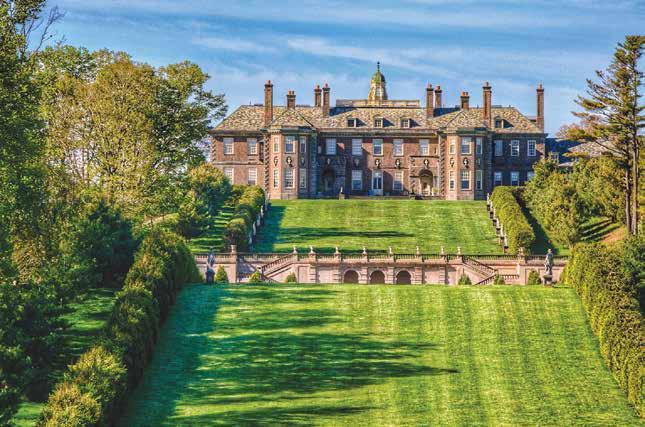
The Bloedel family’s mid-century modern home at Field Farm has long functioned as a bed and breakfast, where guests and visitors alike enjoy a curated collection of contemporary sculptures dotted around the bucolic landscape. But one of the most unique features of the property—the family’s jewel box of a guesthouse, The Folly (built in 1965)—has mostly been experienced only from outside. This June, visitors will once again be able to tour the newly refurbished Folly, with its beautiful curves, eyebrow windows, glass walls, and large sliding glass portals framing views of Mt. Greylock and the Berkshire hills. Don’t miss the retro kitchen with custom designed features like a blender-mixer built into the counter!
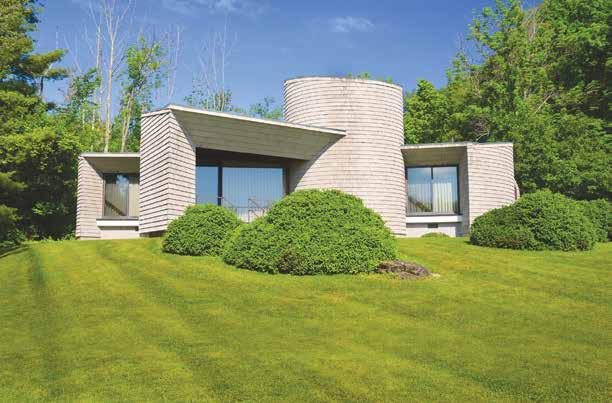
Clara Endicott Sears’s summer estate and site of a short-lived 19th-century transcendentalist community, offers some fresh programs and new art installations this spring. In addition to seeing the Fruitlands Farmhouse and Shaker Gallery on the Visions of Utopia tour, you can visit these spaces on your own. Consulting interpreters will be on-hand in each building to answer questions.
On the third Saturday of each month, May through October, Trustees’ Associate Curator of Native American Art, Tess Lukey, will spotlight a piece from the museum’s renowned permanent collection. And in June, artist Rachel Hayes’s largescale abstract textile piece, Transcending Space, will be on display in the Art Gallery, with a companion work installed overlooking Fruitlands’ famous hillside vista.


With its glorious garden spaces and woodland trails, the home of the Sedgwick family has recently been revitalized as a dynamic center for horticultural learning. Long Hill hosts its first annual Garden Symposium (May 6 & 7) featuring an internationally renowned group of plant specialists and horticultural professionals. Enjoy lectures and workshops across this spectacular garden property on topics ranging from drought-tolerant garden design to edible flowers.
Sunday Afternoon Tea debuts on the garden terrace this spring, with a spread including hot tea, sandwiches, scones, and mini pastries. Music and sound are also new features in the gardens this year. The Long Hill team provides a series of mindfulness prompts to enhance your garden viewing and listening experience, or you can soothe your heart and soul with Sounding Healing guided relaxation programs.
In the early 18th-century, John Sergeant established a mission for the Mohican people in the southern Berkshires. The Mission House is the home Sergeant built around 1742. The house and gardens have received recent updates, and occasional tours of the interior of the house are planned for the summer and fall.
Come June, visitors can also view an expanded version of Mohican Miles, an exhibit curated by the Stockbridge-Munsee Mohican Community, in the Carriage House. Newly titled Our Lands, Our Home, Our Hearts, the display provides a detailed look at centuries of the tribe’s survivance and highlight’s the Mohican culture’s vibrance and connection to the area now known as Stockbridge.

The Choate family’s Gilded Age, 44-room, shingle-style home in the heart of the Berkshires, elegantly situated overlooking 48 acres of spectacular gardens and vistas, Naumkeag ushers in some exciting new options this season. And visitors will discover new and more accessible pathways through the gardens this year, as well.
Memorial Day weekend kicks off Naumkeag’s self-guided tours with many new areas of the house featured, including some unexpected places—don’t forget to check the closets! Coming this summer, look forward to the arrival of new full house tours that include the never-before-seen third floor. Also new is the Spill the Tea summer program, consisting of multiple talks highlighting Naumkeag’s history and stories of the Gilded Age.
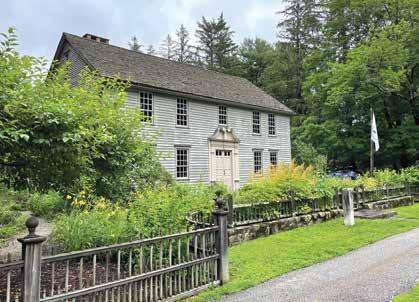
The center of Concord’s political, literary, and social world for over a century, and home to Ralph Waldo Emerson and later, Nathaniel Hawthorne, among others, “the Manse” hosts some exciting programs this season. Popular tours include Flipping the Script: The Women of the Old Manse, which shares the stories of the women who lived in the Manse from the time of the
Revolutionary War through the mid-20th century, and If These Walls Could Talk, which details the history behind the wallpaper and graffiti in the house.
Bring the kiddos for the Family Friendly Tour, which shares stories about how people lived during the Revolutionary War, and the child-friendly Nature of Stories series, which returns by popular demand. Held outdoors, these free story time programs focus on different aspects of the natural world and include art activities to explore nature further.
The Coolidge family’s early-20th-century estate features a gracious home surrounded by gorgeous gardens, and the coming months bring a host of garden- and flower-focused programs. In addition to the annual Mother’s Day Floral Workshop the Garden Tour series, and the Father’s Day Bash, this season also offers the chance to see the house’s second floor for the first time. Don’t miss Helen Stevens Coolidge’s bedroom and its newly conserved wallpaper. And Stevens-Coolidge’s concert series in the gardens will be back again this summer, as well, featuring an expanded line-up of musical performances.
The Trustees’ historic houses are buzzing with activity like never before. If you’re familiar with these special places, stop by and see what’s new for 2023. And if you’ve never visited some of these homes, now’s the time to discover them!
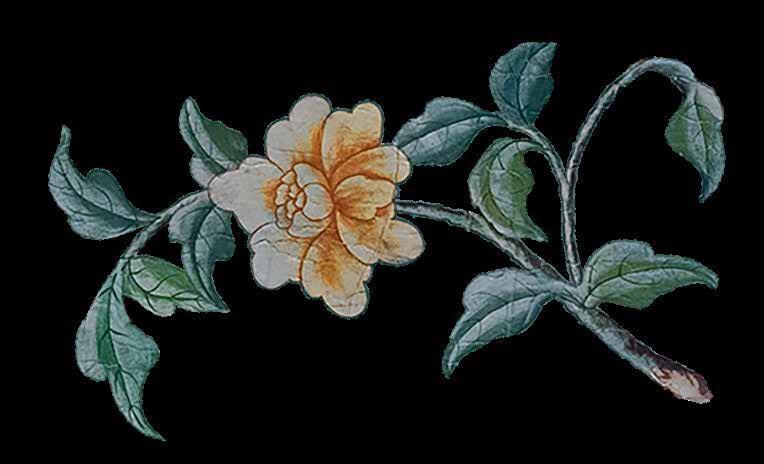

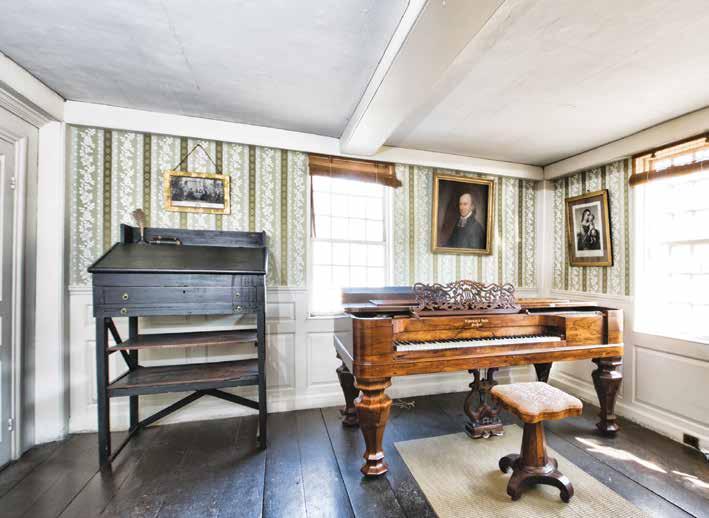
For more about the histories of these houses, along with up-to-date hours, tours, and program details, visit thetrustees.org/ historicspaces.
Victoria Abbott Riccardi is a Newton-based freelance travel, food, and lifestyle writer,
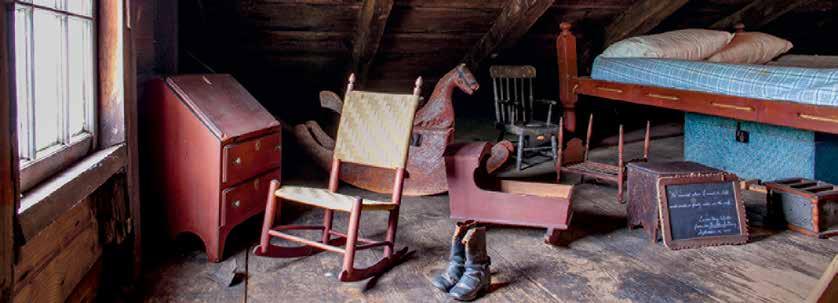
Spring always ushers in new life at Trustees reservations—adorable lambs, kids, and calves grace our farms, spectacular flowers blossom at our gardens, and the doors open again at our historic houses. Our Engagement teams are excited to share their brilliant new programs with you and your families, too! Here are just a few ideas. More are available in our Things To Do listings starting on page 12 and, as always, you’ll find all our dazzling programs along with up-to-date schedules and registration information on our website at thetrustees.org/ things-to-do
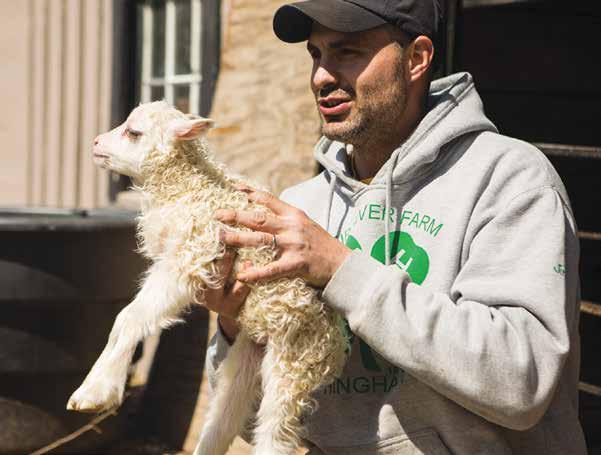
Trustees gardens are always buzzing in spring, and never more than this year! Hundreds of thousands of bulbs will delight you at both Spring Blooms at Stevens-Coolidge House & Gardens in North Andover and the Daffodil & Tulip Festival at Naumkeag in Stockbridge. If you love gardening and love learning about gardening, don’t miss the 1st Annual Long Hill Garden Symposium, featuring worldrenowned guest speakers at Long Hill in
Beverly’s spectacular new horticultural learning campus. We’ve got fantastic plant sales at Long Hill, City Natives in Mattapan, Haskell Public Gardens in New Bedford, and Chestnut Hill Farm in Southborough. And our annual South End Garden Tour in Boston returns in June. There’s so much to see in bloom!
From the FARM Institute in Edgartown to Appleton Farms in Hamilton & Ipswich to Powisset Farm in Dover, the variety of cooking classes will tickle your taste buds this spring. Spice up your kitchen skills with Appleton Farms’ Culinary Workshops. Powisset Farm has adult and kids cooking classes throughout the season. Or try Farm to Focaccia: Bread Art with Vineyard Baker at the FARM Institute. Appleton brings back it’s ever popular Farmhouse Pizza in early June. Or kick off Pride Month at Powisset with Queen Bee: A Honey of a Culinary Experience!
The hills are alive with Trustees concerts and musical events this spring and
throughout the summer and fall. We’ve got jazz, rock, AfroPop, folk music, and more at Fruitlands Museum in Harvard, Governor Hutchinson’s Field in Milton, the Castle Hill Picnic Concerts (Ipswich) and Naumkeag at Night (Stockbridge). And for the most unique musical performances yet, try our new Scenic Songs series—musical artists will join you for a hike and then perform an acoustic set among the fields, vistas, and waterways, from Jewell Hill in Ashburnham to Moose Hill Farm in Sharon, Ward Reservation in Andover & North Andover to Peaked Mountain in Monson, and more! Bring the kiddos to one of our farms for Open Barnyards, Barnyard Story Hours, or Preschool Farm Explorers. Weir River Farm in Hingham also provides sensory-friendly events in the barnyard and is having a Spring Festival in mid-May. And if you’re west of I-495, try one of our new hikes, fly fishing, birding, eco-walks, mindfulness programs and more, courtesy of our new partnership with Adventure East (see page 26). For all our up-to-date offerings and schedules, visit thetrustees.org/ things-to-do. We can’t wait to see you!
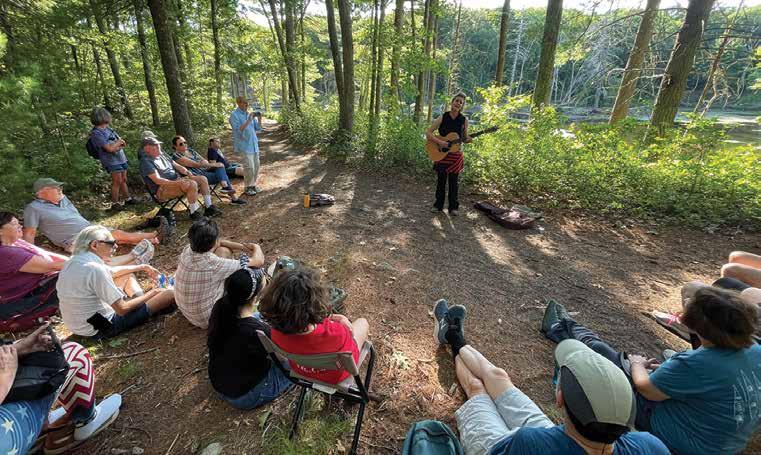
Dazzling programs are in bloom!
Look inside for a snapshot of programs available this season. There are many more on our website—see the full list and sign up at thetrustees.org/ things-to-do, today!
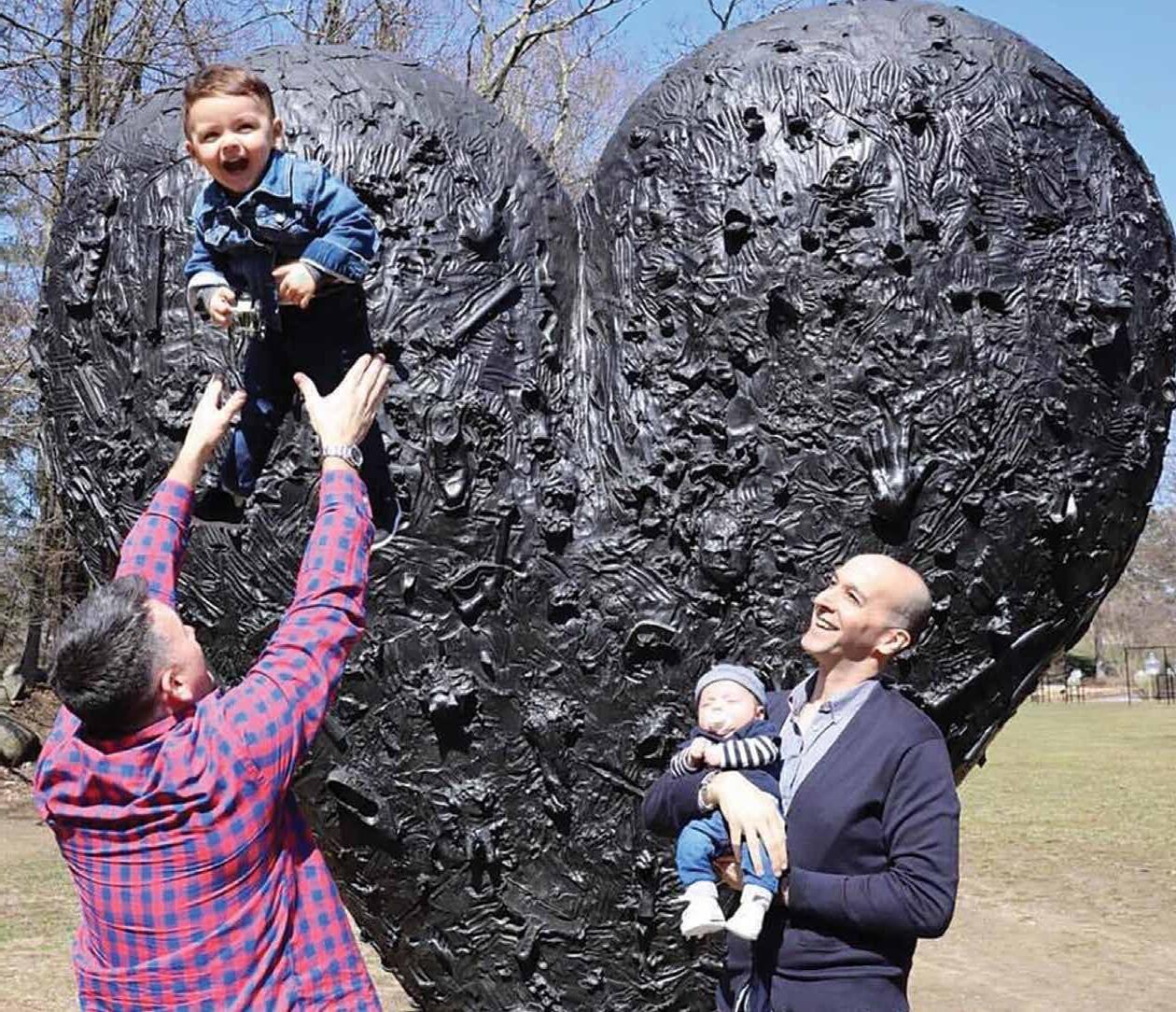
Nature’s colors begin to return to our forests, fields, and gardens with a variety of native spring ephemerals and the diverse array of bulbs we planted in the fall.
GUIDED WILDFLOWER WALKS AT BARTHOLOMEW’S COBBLE
SATURDAYS, APR 15-29 | 12NOON-1PM
SUNDAYS, APR 23 & 30 | 12NOON-1PM & 2-3PM
Bartholomew’s Cobble, Sheffield
BIRDS AND BLOOMS
SATURDAY, APR 29 | 7-9AM
Bartholomew’s Cobble, Sheffield
SPRING WILDFLOWERS WALK AT MARY CUMMINGS PARK
SUNDAY, APR 30 | 1-3:30PM
Mary Cummings Park, Burlington & Woburn
SPRING WILDFLOWER WALK AT FIELD FARM
SUNDAY, MAY 7 | 1-3PM
Field Farm, Williamstown
Warmer weather means it’s time to get your hands dirty in the garden. Learn from our staff and the many experts we partner with. For our full array of garden workshops visit thetrustees.org/ gardening.
LONG HILL GARDEN SYMPOSIUM
SATURDAY & SUNDAY, MAY 6 & 7 | 9AM-4PM
Long Hill, Beverly
GROW MORE VEGGIES
SATURDAY, MAY 6 | 10-11:30AM
Greenwood Community Garden, Dorchester
VERTICAL GARDENING WORKSHOP
SATURDAY, MAY 13 | 10-11:30AM
Norton & Stonehurst Streets Community Garden, Dorchester
SPRING SIPPERS GARDEN MIXOLOGY CLASS (ONLINE)
THURSDAY, MAY 18 | 6-7:30PM
Boston Community Gardens, Boston
POLLINATOR GARDENING WORKSHOP
SATURDAY, JUN 3 | 10-11:30AM
Berkeley Community Garden, South End
GROW & PRESERVE HERBS
WEDNESDAY, JUN 21 | 6-7:30AM
SATURDAY, JUN 24 | 10-11:30AM
El Jardín de la Amistad, Roxbury
GARDEN TO GLASS MIXOLOGY CLASS (ONLINE)
THURSDAY, JUN 22 | 6-7:30PM
Boston Community Gardens, Boston
EAT YOUR WEEDS
WED, JUN 28 | 6-7:30PM
Leland Street Community Garden, Jamaica Plain
Visit thetrustees.org/springplantsale for more information on these sales. Plants will also be available when visiting Naumkeag, Stevens-Coolidge House & Gardens, and Long Hill during regular daily hours.
CITY NATIVES PLANT SALE
Via online pre-order for pickups on:
THURSDAYS, MAY 11 & 18 AND SATURDAYS, MAY 13 & 20 | 9AM-3PM
Walk-ins welcome:
THURSDAY, MAY 25 | 9AM-3PM
City Natives, Mattapan
31ST ANNUAL LONG HILL PLANT SALE

SATURDAY, MAY 13 | 9AM-1PM
Long Hill, Beverly
HASKELL PUBLIC GARDENS PLANT SALE
SATURDAY, MAY 21 | 10AM-2PM
Allen C. Haskell Public Gardens, New Bedford
NEW! CHESTNUT HILL FARM PLANT SALE
SATURDAY & SUNDAY, MAY 20 & 21 | 9AM-4PM
Chestnut Hill Farm, Southborough
Don’t forget to REGISTER ONLINE FOR YOUR PROGRAM at thetrustees.org/things-to-do
Program details subject to change. For up-to-date event information, or to search for events in your area, at a specific property, by type or by date, click on Things To Do at thetrustees.org.
Use your member code (above your name on your member card) to qualify for member discounts. If you need to find your member code, account information, or look up ticket and registration status for specific programs, visit thetrustees.org/customerservice
Looking for something to do with the kiddos this vacation week? We’ve got you covered! Here are a few programs to check out. Be sure to head to thetrustees.org/aprilvacation for a full and up-to-date list of programs.
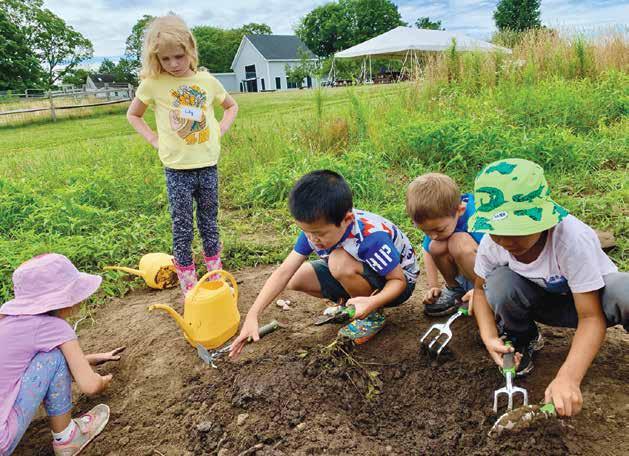
KIDDOS IN THE KITCHEN: APRIL VACATION!
MONDAY-THURSDAY, APR 17-20 | 9AM-12NOON
Powisset Farm, Dover
FARMER FOR A DAY:
SPRING BREAK DROP-OFF FOR KIDS
MONDAY-FRIDAY, APR 17-21 | 9AM-3PM
Appleton Farms, Hamilton & Ipswich
JUNIOR FARMER FOR A DAY
MONDAY & TUESDAY, APR 17 & 18 | 9AM-12NOON
Chestnut Hill Farm, Southborough
FRUITLANDS FAIRY FOREST
SATURDAY-SUNDAY, APR 17-23 (CLOSED TUESDAY)
10AM-4PM | Fruitlands Museum, Harvard
ARTFull AFTERNOONS:
VACATION DROP-OFF PROGRAM
TUESDAY-FRIDAY, APR 18-21 | 2-5PM
deCordova Sculpture Park and Museum, Lincoln
FAIRY FRIENDS: STORYTIME AND ACTIVITIES
WEDNESDAY, APR 19 | 11AM-12:30PM
Fruitlands Museum, Harvard
ARTFull APRIL VACATION EXPLORATIONS
WEDNESDAY-FRIDAY, APR 19-21 | 1-3PM
deCordova Sculpture Park and Museum, Lincoln
FORT BUILDING
THURSDAY, APR 20 | 11AM-1PM
Fruitlands Museum, Harvard
Castle Hill on the Crane Estate, Ipswich
SHIPWRECK SCHOLARS
SUNDAY, APR 16 | 2-4PM
TUESDAY, APR 18 | 3:30-5:30PM
NAVIGATE THE ESTATE
TUESDAY, APR 18 & SATURDAY, MAY 20
10AM-12NOON
ANIMALS IN THE ESTUARY
WEDNESDAY, APR 19 | 10AM-12NOON
MUSIC IN NATURE
THURSDAY, APR 20 & SATURDAY, MAY 27
10AM-12NOON
TACKLING TRASH –ACTION AGAINST MARINE DEBRIS
FRIDAY, APR 21 & SATURDAY, JUN 3 | 10AM-12NOON
Celebrate Planet Earth by hitting the trails, participating in a clean-up, or simply enjoying time outdoors. Trustees properties are a wonderful places to celebrate mother nature.
EARTH DAY SUNRISE AT LYMAN’S RESERVE
SATURDAY, APR 22 | 5:30-7AM | Lyman Reserve, Buzzards Bay
EARTH DAY CLEAN UP & PIZZA POP UP AT APPLETON FARMS
SATURDAY, APR 22 | 8AM-4PM Appleton Farms, Hamilton & Ipswich
EARTH DAY FOREST BATHING
SATURDAY, APR 22 | 10-11:30AM
Chestnut Hill Farm, Southborough
EARTH DAY CELEBRATION

SATURDAY, APR 22 | 10AM-12NOON Boston Community Gardens, Boston
CELEBRATE EARTH DAY HIKE
SATURDAY, APR 22 | 12NOON-1:30PM | Rocky Woods, Medfield
EARTH DAY SCAVENGER HUNT AT COPICUT WOODS
SATURDAY, APR 22 | 1-3PM | Copicut Woods, Fall River
GET YOUR FRESH, LOCAL PRODUCE HERE! May 15 is the last day to sign up for vegetable CSAs at select Trustees farms. For information and to sign up: thetrustees.org/csa
For a FULL LISTING OF PROGRAMS not shown here, visit thetrustees.org/things-to-do
©TRUSTEESA glimpse at just a few of the hundreds of things to do at our special places across the state this season. Visit thetrustees.org/things-to-do to see all of our programs, get the latest updates, find more information and, for events that require them, get tickets. We hope to see you at one of our reservations soon!
SPRING BLOOMS
THURSDAY, APR 27-SUNDAY, MAY 7 | 10AM-5PM (CLOSED TUESDAYS & WEDNESDAYS)
Stevens-Coolidge House & Gardens, North Andover
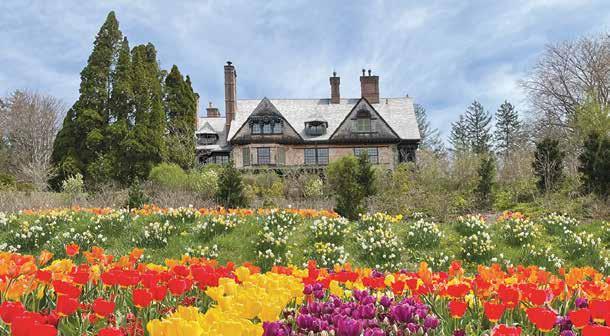
THE DAFFODIL & TULIP FESTIVAL
THURSDAY, APR 27-SUNDAY, MAY 7
Naumkeag, Stockbridge
Additional dates to be added once blooms arrive. For updates and tickets: thetrustees.org/springbulbs
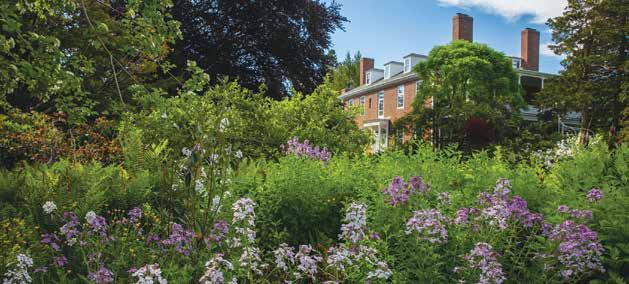
Lectures and workshops featuring internationally renowned plant specialists and horticultural professionals.
SATURDAY, MAY 6 | 9AM-4PM & SUNDAY, MAY 7 | 10AM-4PM Long Hill, Beverly thetrustees.org/longhillsymposium
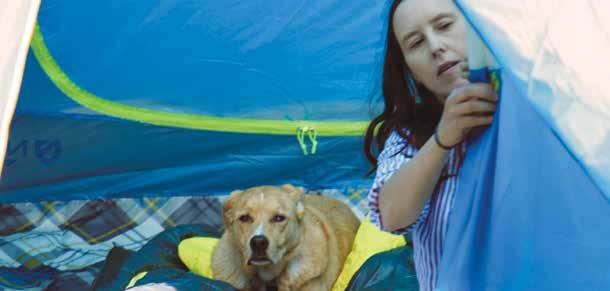
An educational skill-building overnight camping experience with Green Button Counseling and Nemo Equipment! Open to all experience levels.
SATURDAY, MAY 6 | 2PM-10AM (OVERNIGHT)
Rocky Woods, Medfield
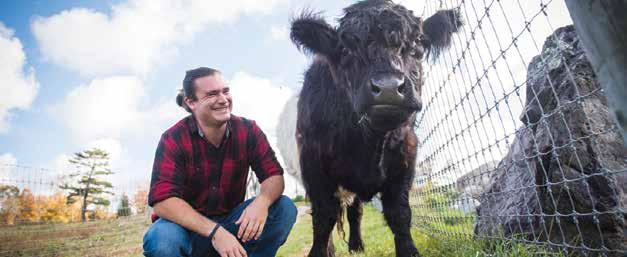
Visit our farm animals, make a farm craft, play games, enjoy live music, and more! Eco-friendly vendors, refreshments, food trucks, and local beer make this a can’t miss family event.
SATURDAY, MAY 13 | 11AM-4PM
Sensory-Friendly Hour | 10-11AM Weir River Farm, Hingham
Don’t forget to REGISTER ONLINE FOR YOUR PROGRAM at thetrustees.org/things-to-do
Program details subject to change. For up-to-date event information, or to search for events in your area, at a specific property, by type or by date, click on Things To Do at thetrustees.org.
Use your member code (above your name on your member card) to qualify for member discounts. If you need to find your member code, account information, or look up ticket and registration status for specific programs, visit thetrustees.org/customerservice
©TRUSTEES
Our concert line-up is expanding locations and genres of music, from Rock to Jazz to Folk, AfroPop, and more. See thetrustees.org/ concerts for the full schedule and artist lists.

Fruitlands Museum (Harvard)
Naumkeag at Night (Stockbridge)
Castle Hill Picnic Concerts (Ipswich) Governor Hutchinson’s Field (Milton)
Join our partnering musical artists for hikes along our trails and then enjoy their exclusive acoustic performances among the fields, forests, and waterways. This year we are expanding this unique experience to seven Trustees reservations, from May through October.

Moose Hill Farm (Sharon), Jewell Hill (Ashburnham), Ward Reservation (Andover & North Andover), Lyman Reservation (Buzzards Bay), Notchview (Windsor), Crane Estate (Ipswich), Peaked Mountain (Monson)
Please join us for a lecture by Steve Locke, the recipient of the 2022 Rappaport Art Prize. Spanning painting, drawing, sculpture, and installation, Locke’s artistic practice critically addresses the history of western art and interrogates the connections between desire, identity, and violence.

WEDNESDAY, MAY 17 | 6-7:30PM
deCordova Sculpture Park and Museum, Lincoln
The garden gates open in Boston's South End for our annual South End Garden Tour. This always-popular neighborhood event provides an opportunity to explore some of the South End's most spectacular private outdoor spaces.
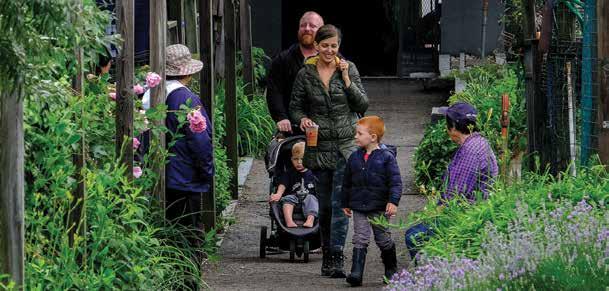
SATURDAY, JUN 17 | 10AM-4PM Boston Community Gardens, Boston
Celebrate Juneteenth at one of Dorchester’s thriving, diverse community gardens with an afternoon of danceable music, spoken word poetry, and tasty snacks & drinks from local artists and vendors.
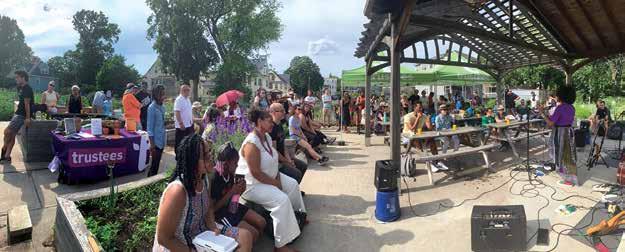
SUNDAY, JUN 18 | 3-5PM
Nightingale Community Garden, Dorchester
For a FULL LISTING OF PROGRAMS not shown here, visit thetrustees.org/things-to-do
©TRUSTEES ©TRUSTEES ©TRUSTEES PHOTO COURTESY ROSS COLLABTreat the moms and dads in your life with a unique event at one of your favorite Trustees reservations or venture out to make special memories at a new place you’ve been meaning to visit! See thetrustees.org/ things-to-do for the latest updated program listings.
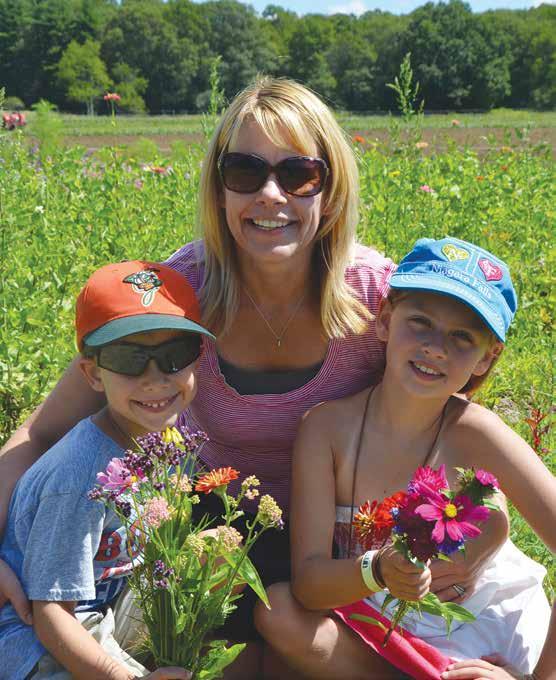
KIDDOS IN THE KITCHEN:
MOTHER’S DAY COOKIES & CARDS!
WED, MAY 10 | 4-6PM
Powisset Farm, Dover
MOTHER’S DAY FLORAL WORKSHOP
THURSDAY, MAY 11 | 6-8PM
Stevens-Coolidge House & Gardens, North Andover
TOTS IN THE KITCHEN: Weekend Special!
MOTHER’S DAY COOKIES & CARDS
SATURDAY, MAY 13 | 9-10:30AM
Powisset Farm, Dover
CraneE xplorer: MOTHER’S DAY COASTAL CRAFTS
SATURDAY, MAY 13 | 10AM-12NOON
Castle Hill on the Crane Estate, Ipswich
MOTHER’S DAY YOGA
SUNDAY, MAY 14 | 9-10AM
Naumkeag, Stockbridge
MOTHER’S DAY HERB PLANTERS
SUNDAY, MAY 14 | 10-11:30AM
Worcester Street Community Garden, Boston
MOTHER’S DAY BRUNCH AT APPLETON FARMS
SUNDAY, MAY 14 | 10AM-2PM
Appleton Farms, Hamilton & Ipswich
MOTHER’S DAY BRUNCH AT POWISSET FARM
SUNDAY, MAY 14 | 11AM-1PM
Powisset Farm, Dover
MOTHERS DAY WILDFLOWER WALK
SUNDAY, MAY 14 | 2:30-4:30PM
Slocum’s River Reserve, Dartmouth
FATHER’S DAY WEEKEND BASH AT APPLETON FARMS
SATURDAY & SUNDAY, JUN 17 & 18 | 12NOON & 2:30PM
Appleton Farms, Hamilton & Ipswich
HIKE WITH DAD AT APPLETON FARMS
SATURDAY, JUN 17 | 11AM-12:30PM
Appleton Farms, Hamilton & Ipswich
FATHER’S DAY YOGA IN THE PARK
SUNDAY, JUN 18 | 11:30AM-12:30PM
deCordova Sculpture Park and Museum, Lincoln
FATHER’S DAY FORT BUILDING EXPEDITION
SUNDAY, JUN 18 | 2-4PM
Copicut Woods, Fall River
FATHER’S DAY BASH
SUNDAY, JUN 18 | 5-8PM
Stevens-Coolidge House & Gardens, North Andover
Trustees kitchens at Appleton Farms (Hamilton & Ipswich), Powisset Farm (Dover), and The FARM Institute (Edgartown) are busy making sourdough, pasta, pizza, and so much more. Sharpen your cooking skills with farm fresh ingredients and new friends. This season’s classes for kids, teens, and adults are all listed at thetrustees.org/cooking
Don’t forget to REGISTER ONLINE FOR YOUR PROGRAM at thetrustees.org/things-to-do
Program details subject to change. For up-to-date event information, or to search for events in your area, at a specific property, by type or by date, click on Things To Do at thetrustees.org.
Use your member code (above your name on your member card) to qualify for member discounts. If you need to find your member code, account information, or look up ticket and registration status for specific programs, visit thetrustees.org/customerservice
PHOTO BY CONNOR YOUNGVenture out in the dark as we let the moon and the stars be our guide. You may even hear owls calling or coyotes yipping. thetrustees.org/moon
MAY THE 4TH: FULL MOON AND STARGAZING
THURSDAY, MAY 4 | 7:30-9PM
Cornell Farm, Dartmouth
CraneOutdoors:
DUNES BY THE LIGHT OF THE FULL MOON
THURSDAY, FRIDAY & SUNDAY, MAY 4, 5 & 7 | 7:30-10PM
FRIDAY-SUNDAY, JUN 2-4 | 7:45-10:15PM
Crane Beach on the Crane Estate, Ipswich
CraneE xplorer:
FAMILY FULL MOON HIKE IN THE DUNES
THURSDAY, FRIDAY & SUNDAY, MAY 4, 5 & 7 | 7:30-9:30PM & FRIDAY-SUNDAY, JUN 2-4 | 7:45-9:45PM
Crane Beach on the Crane Estate, Ipswich
FULL MOON HIKE AT WORLD’S END
THURSDAY & FRIDAY, MAY 4 & 5 | 7:45PM
FRIDAY & SATURDAY, JUN 2 & 3 | 8:15PM
World’s End, Hingham
FULL MOON HIKE AT WARD RESERVATION
FRIDAY, MAY 5 | 6:30-8PM
Ward Reservation, Andover & North Andover
FULL MOON HIKES AT APPLETON FARMS
FRIDAY, MAY 5 & SATURDAY, JUN 3 | 7-8PM
Appleton Farms, Hamilton & Ipswich
NEW MOON HIKES AT APPLETON FARMS
FRIDAY, MAY 19 & SUNDAY, JUN 18 | 7-8PM
Appleton Farms, Hamilton & Ipswich
FULL MOON HIKE AT LYMAN RESERVE

SUNDAY, JUN 4 | 7:45-9:15PM
Lyman Reserve, Buzzard’s Bay
CHESTNUT HILL BY MOONLIGHT:
POLLINATORS OF THE NIGHT GUIDED HIKE
SATURDAY, JUN 24 | 8-9:30PM
Chestnut Hill Farm, Southborough
SUMMER SOLSTICE SUNSET
WEDNESDAY, JUN 21 | 7:30-9PM
Cornell Farm, Dartmouth
SUMMER SOLSTICE SOUND HEALING
WEDNESDAY, JUN 21 | 6-7PM
Long Hill, Beverly
SUMMER SOLSTICE COCKTAIL PARTY AT APPLETON
SATURDAY, JUN 24 | 5-8PM
Appleton Farms, Hamilton & Ipswich
SUMMER SOLSTICE AT WORLD’S END
SATURDAY, JUN 24 | 5-8PM
World’s End, Hingham
FAMILY FARM YOGA:
CELEBRATING THE SUMMER SOLSTICE
THURSDAY, JUN 29 | 6-7PM
Chestnut Hill Farm, Southborough
Trustees has a robust line up of fun hikes for all ages and abilities. For the most up to date list of hikes, visit thetrustees.org/guidedhikes.
For a FULL LISTING OF PROGRAMS not shown here, visit thetrustees.org/things-to-do

The Trustees’ historic houses showcase architecture and design, collections and craftsmanship, and culture that spans more than 300 years. These spaces animate history, provoke conversation, and stimulate new thinking while reinterpreting our cultural past.
Before heading out, be sure to visit thetrustees.org/ historicspaces for the latest details on opening schedules, tour dates and times, tickets, and more.
THE GREAT HOUSE AT CASTLE HILL Ipswich
Themed tours include the always popular Cupola with a View, Guest of the Cranes, Highlights on the Hill, Servant Life in a Tech-Savvy House, and The Cat’s Meow. Two new and engaging tours have recently been added: Castle Hill House & Gardens, and our most Instagrammable tour, Castle Hill Golden Hours.
THE FOLLY AT FIELD FARM Williamstown
NEW! Tour the refurbished Bloedel family guesthouse, designed in 1965 by Ulrich Franzen.
FRUITLANDS MUSEUM Harvard
Visions of Utopia tours offer a guided opportunity to step inside Fruitlands’ two historic homes—the Fruitlands Farmhouse and the Shaker Gallery.
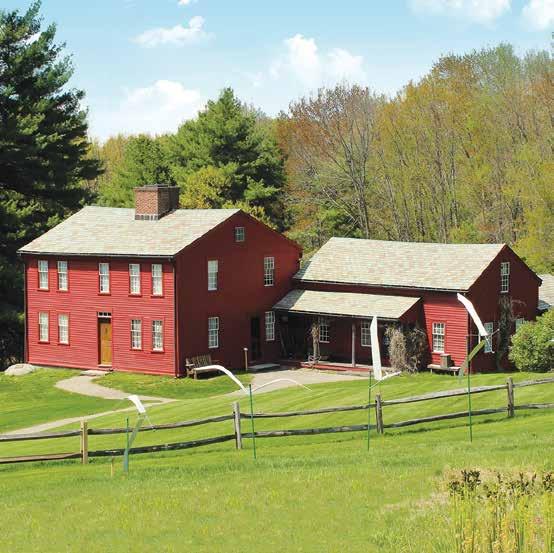
LONG HILL Beverly
Join expert guides for the Long Hill Garden Tour to learn about the stunning and historic Sedgwick Gardens. Long Hill’s main house is open for self-guided tours.
THE MISSION HOUSE Stockbridge
Narratives weave together across time and cultures at Missionary John Sergeant’s Colonial-era home. Beginning in June, view Our Lands, Our Home, Our Hearts, an exhibit curated by the Stockbridge-Munsee Community, in the Carriage House.
NAUMKEAG Stockbridge
The house at Naumkeag will be open for ticketholders to the Daffodil & Tulip Festival , and then will re-open for the season on May 26. New this year, be sure to visit the never-before-opened third floor!
THE OLD MANSE Concord
Choose from six themed tours: If These Walls Could Talk: The Walls and Historic Graffiti of the Old Manse, Flipping the Script: The Women of the Manse, American Contradictions: Slavery and the American Revolution at the Old Manse, Attic Tour, Home to Two Revolutions, and our Family-Friendly Tour.
STEVENS-COOLIDGE HOUSE & GARDENS North Andover
Ticketholders for Spring Blooms will be able to tour the StevensCoolidge House during their visit. After the festival, the house will be open weekdays (except Tuesdays and Wednesdays) and weekends for self-guided tours from 11AM–3PM. The regular season begins in late May.
Here’s a quick sneak peek at upcoming summer programs we don’t want you to miss! For details and updates, visit thetrustees.org/things-to-do.
SUMMER CONCERTS
Thursday Nights throughout the summer. Picnic Concerts at Castle Hill on the Crane Estate (Ipswich), Naumkeag at Night (Stockbridge), Fruitlands Museum (Harvard), Long Hill (Beverly), Stevens-Coolidge House & Garden (North Andover)
SABORES DE NUESTRA CULTURA: FAMILY FESTIVALS
SATURDAYS, JUN 17, JUL 22, AUG 5 & SEP 2 | 1-4PM
Piers Park, East Boston
COCKTAILS AT THE CASTLE
WEDNESDAYS, JUN 28, JUL 26 & AUG 30 | 6-8PM
Castle Hill on the Crane Estate, Ipswich
SUNSET PICNICS ON THE WATERFRONT
THURSDAYS, JUN 29, JUL 14, AUG 11 & SEP 8
6:30-8PM
Piers Park, East Boston
PROGRAM REFUNDS/CANCELLATIONS: In the event that a program is cancelled due to severe weather, low enrollment, or other circumstances, we will notify you as soon as possible by email and issue you a full refund within 14 days of the cancellation. If you cannot attend a program as planned, contact the Trustees property 7 days prior to the start of the program to receive a full refund. Refunds will not be granted for registration cancellations placed fewer than 7 days before the start of the program. There are no refunds for missed classes. The Trustees reserves the right to change program locations, schedules, or instructors when necessary. Note: Summer Camps and our inns and campgrounds each have separate cancellation policies.
thetrustees.org/things-to-do
Program details subject to change. For up-to-date event information, or to search for events in your area, at a specific property, by type or by date, click on Things To Do at thetrustees.org
Use your member code (above your name on your member card) to qualify for member discounts. If you need to find your member code, account information, or look up ticket and registration status for specific programs, visit thetrustees.org/customerservice.
554 Sloan Road, Williamstown
Through May 2, 2023
Counterculture is a mixed media installation that honors generations of marginalized people and cultures who voices have too often been silenced by colonization. Counterculture is installed along the horizon line of a Field Farm meadow, standing watch over Sloan Road and the surrounding Berkshire hills. The artwork consists of twelve 10-foot-tall cast-concrete figures adorned with ceramics and found objects.
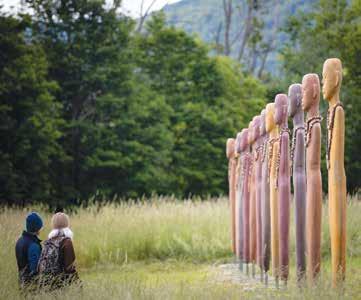
102 Prospect Hill Road, Harvard
RACHEL HAYES: TRANSCENDING SPACE
March 11, 2023-March 1, 2024
Textile artist Rachel Hayes uses nylon, polyester, and cotton segments from earlier projects and stiches them together into abstract art works. Her solo show at Fruitlands Museum features several large, color-block pieces alongside new works.

For more information on these and all Trustees exhibitions, visit thetrustees.org/exhibitions.
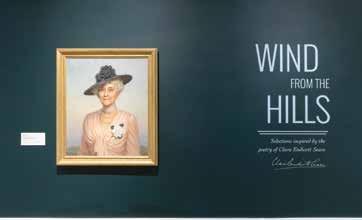
51 Sandy Pond Road, Lincoln
NEW IN THE PARK!
TEMPORAL SHIFT
We are thrilled to welcome Temporal Shift by Alyson Shotz to deCordova Sculpture Park and Museum. This new acquisition interacts with light and its surroundings, and the elliptical shape offers a playful reflection on the Earth's yearly rotation.
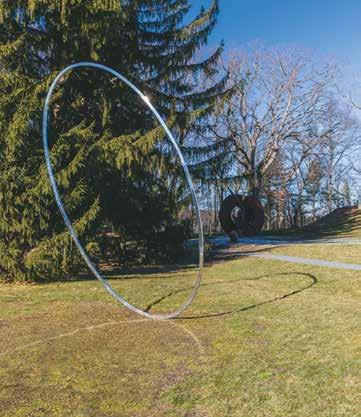
June 2023-Spring 2024
Save the date for this exciting new outdoor commission.
Through August 20, 2023
Drawn from Fruitlands’ permanent collection, Wind from the Hills is inspired by select poems from Fruitlands founder Clara Endicott Sears’ 1935 anthology Wind from the Hills and other Poems. The galleries feature 19th-century landscape paintings, folk art, Shaker textiles, and Indigenous artworks revealing the complexities of Sears’ artistic interests while reviving her words.
Editor’s Note: Recently we announced a temporary hiatus of indoor exhibitions at deCordova Sculpture Park and Museum. This temporary suspension allows The Trustees to make upgrades to the museum’s HVAC and climate control systems. During this time the outdoor Sculpture Park will remain open and energized with new installations, sculptures, and lively programs. We look forward to sharing the vibrancy and creativity of the Sculpture Park with you, stay tuned!
As you begin shopping for seeds and plants this spring, “consider the role your gardens can play to support our local pollinators and maintain healthy populations of food and nectar for them,” says Kristin McCullin, Horticulturist at Allen C. Haskell Public Gardens in New Bedford. “Without pollination, most plants can’t make fruit and seeds, and pollinators could really use a little help from us gardeners these days.”
Planting for pollinators is essential to maintaining populations of our insect friends, who need flower-rich forage, host plants or nest sites to lay their eggs, and an environment free from pesticides. Creating additional habitat, made up of a diversity and abundance of plants that provide pollen and nectar, is something we can all do to slow or reverse population declines.
Whether you’re a novice or experienced gardener, here are some important tips to keep in mind—provided by McCullin, as well as Andrew Lawson, Field Crop Manager at Appleton Farms, and Jordan Takvorian, Stewardship Manager for the 56 Trustees Community Gardens throughout Boston.

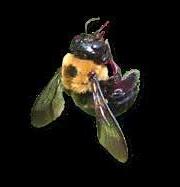

The best pollinator habitats have good sun exposure, full sun at least part of the day, and soil with good fertility and drainage. You can prepare the site by smothering existing vegetation with cardboard or a tarp or removing sod or existing vegetation by hand and turning the soil with a shovel or rototiller. And if you’re planning ahead for next year, another trick is to solarize the site with plastic for many months prior to planting. Either way, be sure to mix in rich compost if the soil is poor.
Water new planting routinely in the absence of rain and put down mulch around plants to help control weeds. And there’s no better
tool than your own hands to control weeds, especially around transplants. In the fall, be sure to leave at least some of the leaf litter where it’s fallen, since butterflies and moths that lay eggs on leaves will emerge next spring from leaf litter and other beneficial insects overwinter there. There’s also potential for breeding habitat to be formed by small, exposed patches of sand and mud, creating new homes for ground nesting bees.
Group your plants in single species clusters of at least 3-ft in diameter and keep plant diversity in mind. Be sure to include a variety of plants with different flower sizes, shapes, and colors, and plants of varying heights and growth habits—this will support a wider diversity of pollinators. As few as ten carefully chosen species provides a good foundation for pollinator habitat.
Consider the bloom timing of your plants, which will provide a continuous food supply for pollinators. Choose at least three pollinator plants from each of the three bloom periods: spring, summer, and fall. It’s especially important to have plants that bloom in both the early spring and late fall, as these plants provide forage at critical times for pollinators. Native grasses are also a terrific addition to your pollinator area, providing habitat for butterflies and potential nesting sites for bumble bees.
These tips apply to any size garden in any location, from large rural plots to backyard gardens in the suburbs, or even in the middle of a city. “Green spaces, large or small, provide much needed pollinator habitat in otherwise built-up urban environments,” says Takvorian. “Incorporating native plants in the urban landscape provides nectar and pollen to local populations and serves as steppingstones to larger viable habitat for those species that are migrating through.”
No matter what space you have available or your skill level, you can easily do your part to help pollinators do their crucial work by following these handy guidelines. And if you’re interested in learning more, there are many online resources—for example, the Massachusetts Department of Agricultural Resources (at mass.gov) has loads of great information, tips, and tools.
These native herbaceous pollinator plants are just a few good options to include in your garden:
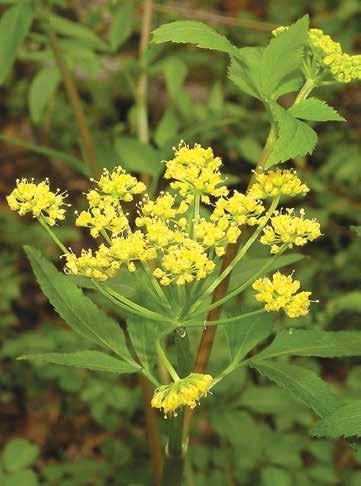
Golden Alexander (Zizia aurea), Common Spiderwort (Tradescantia virginiana), Wild Geranium (Geranium maculatum), Wild Ginger (Asarum canadense)
SUMMER
Smooth Penstemon (Penstemon digitalis), Wild Bergamot (Monarda fistulosa), Purple Giant Hyssop (Agastashe scrophulariifolia), Butterfly Milkweed (Asclepias tuberosa), Joe-Pye Weed (Eupatorium fistulosum), Mountain Mint (Pycnanthemum muticum)
FALL
New England Aster (Symphyotrichum novae-angliae), New York Aster (Symphyotrichum novi-belgii), Canada Goldenrod (Solidago canadensis)
TREES/SHRUBS
American Basswood (Tilia americana), Common Serviceberry (Amelanchier arborea), Highbush Blueberry (Vaccinium corymbosum)
When it comes to ornamental plants for pollinator gardens, look for members of the mint, aster, and rose families (perennial and annual). Most are commonly available at garden centers, including:
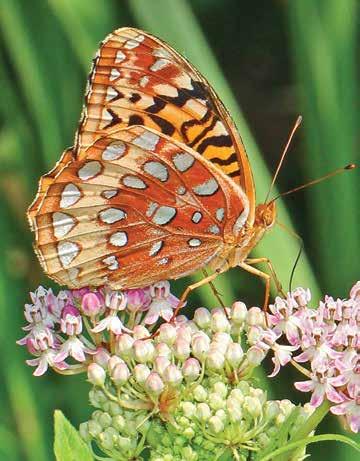
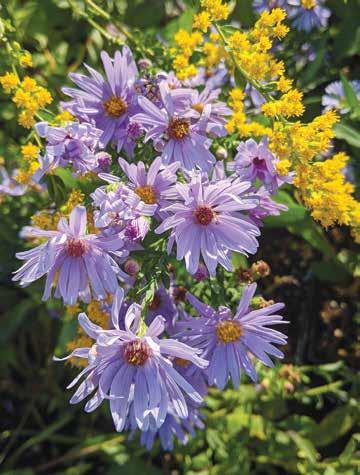
PERENNIALS
Catmint (Nepeta), Coneflower (Echinacea), Lavender (Lavendula), Oregano (Origanum), Russian Sage (Perovskia atriplicifolia)
ANNUALS
Borage (Borago officinalis), Sunflower (Helianthus annuus), Cosmos (Cosmos bipinnatus)
SHRUBS
Rugosa Rose (Rosa rugosa), Pussy Willow (Salix discolor), False Indigo (Amorpha fruticosa)
GRASSES
Big Bluestem (Andropogon gerardii), Little Bluestem (Schizachyrium scoparium)
Consider the dilemma faced on a farm: When it comes to farming or conservation ecology, which matters more? For example, when cattle or tractors move through a pasture in midsummer, they can destroy the nests of migratory birds that nest on the ground. However, if a farmer cannot graze animals or hay grass during its peak growing cycle, they risk losing their business—and potentially having to sell that critical grassland habitat to a developer as a result.
So unsurprisingly, the typical relationship between conservation ecologists and farmers may best be described as “tense.” However, if you peel back the layers of what it takes to manage land to produce food versus to support wild species, you largely find the same fundamental concerns. Cultivation and conservation both depend on healthy soil, clean water, and lots of healthy biodiversity above and below ground. It would seem ecologists and farmers could accomplish so much together if only there was a bridge between their two worlds.
Enter Alejandro Brambila, who joined The Trustees in April 2022 after completing a PhD in ecology and plant community ecology at the University of Oregon. As the organization’s first agroecologist, Brambila is leading an ambitious new effort to marry the craft of food production with the science of ecology across the Trustees’ five working farms. He is helping test-drive the latest
knowledge about ecologically beneficial farming from around the country to see if the practices work for Trustees’ and other Massachusetts farms.
“We feel like we struck gold when we hired Alejandro,” says Trustees Director of Agriculture Jennifer Core. “With his deep scientific background and the way he works shoulder-to-shoulder with our farm staff, Alejandro brings so much balance to facilitating conversations around shared farming and ecological goals.”
Brambila works with the Trustees’ agriculture and ecology teams to nurture healthy ecosystems on its farms. For example, at Appleton Farms, he is working with farm staff to test how to manage the grazing operation in a way that supports nesting habitat for bobolinks—small songbirds that migrate annually between local fields and South America.
On traditional conservation land, it’s possible to stay off the grass until the
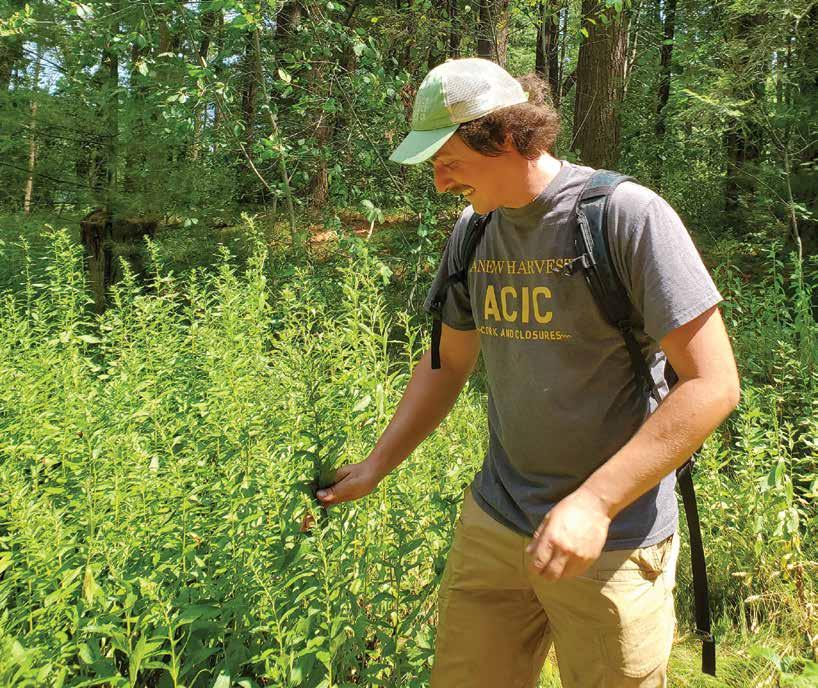
bobolinks have nested, hatched their young and raised the baby birds until they’re ready to fly south. “But small farms in New England essentially lose their best forage if they wait until early August,” notes Brambila.
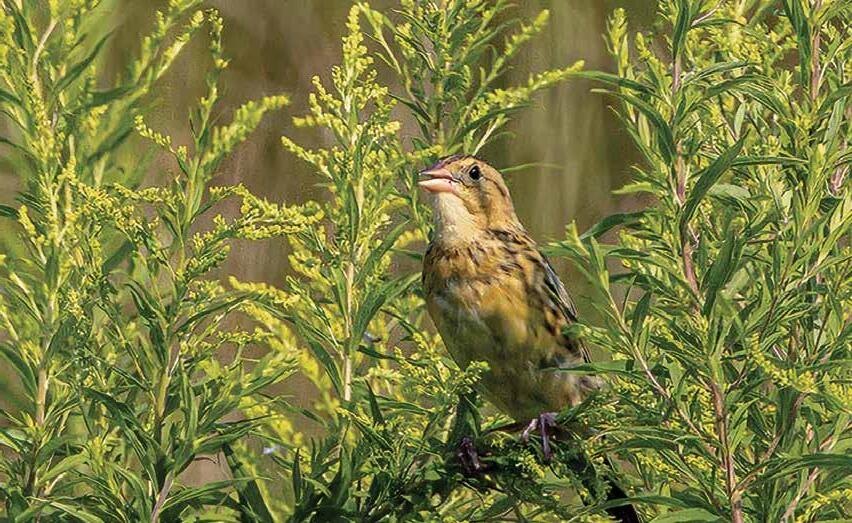
This summer, he will lead bobolink surveys to understand the effects of allowing grazing and haying in certain pastures up through mid-May or early June. The hope is that this schedule will allow the grass to regrow enough so the bobolinks can safely complete their two-month nest-hatch-fledge cycle before returning to their winter home.
Brambila is also looking at other ways to support conservation ecology that feeds directly back into food production through climate resiliency, plant nutrition, pollination, and pest control. In another pilot project, for example, The Trustees will replace up to 20 acres of the European pasture grasses that dominate Appleton’s pastures with native prairie grasses.
“Cool-season European grasses performed well for New England farms in the past, but climate change is complicating this,” says Brambila, noting that The Trustees had to feed its cattle hay meant for winter during last summer’s historic drought. “Native grasses thrive in the heat and are resistant to drought and less dependent on soil amendments. They also support many more bees, butterflies, small mammals, and birds.”
Other agroecology initiatives are designed to investigate how to support
This story and the one on the next page are the first in a series of articles that highlight what “nature” means to The Trustees. It means more than you might think—like resiliency, community, discovery, and creativity. It means sparking dialogue through art or gaining new perspectives through hikes in our woods, beaches, and hills. It means digging our hands in the earth to cultivate food or learning the stories of those who came before us.
native pollinators within the Trustees’ field crop and livestock operations, as well as if incorporating native perennials such as blueberry and elderberry shrubs could help stabilize and enrich the soil and create new crops and revenue.

The work Brambila will lead in the coming years to define farmland management and trial new production practices at the Trustees “has the potential to be really impactful across the entire state of Massachusetts and the region,” says Core. That’s because the Trustees’ five working farms function as self-sustaining businesses, just like other family farms around New England. The farms must keep producing high yields of fresh, healthy foods for some 1,200 vegetable and 500 meat CSA members to stay afloat.
However, Core says, “the abundance of farmland owned by The Trustees means we can take some risks that small farmers can’t take.” Where most farms in the region are smaller operations run by families who need every acre to produce in order to ensure their livelihood, Trustees farms can spare an eighth-of-an-acre here or several acres there to experiment with new practices, says Core. “We can then share the lessons learned—both the successes and failures—outside The Trustees to support the farming community as a whole.”
Freelance writer Genevieve Rajewski covers nature, animals, science, medicine and food.
Trustees cares for more than 120 of Massachusetts’ most beautiful, historic, cultural, and ecologically important places. We tell their stories—because it is in our nature to share these places with you. We hope these stories start conversations about the many things in our nature. Some might surprise you!
Join these conversations and share your own experiences. Look for #inournature on the Trustees’ social media pages on Facebook, Instagram, LinkedIn, Twitter, and TikTok. Then use #inournature on your own posts so we can feature your stories. What’s in your nature?

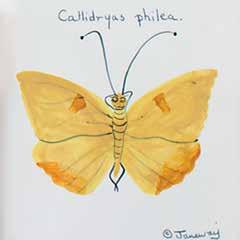
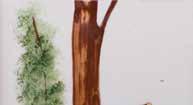
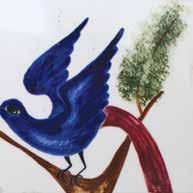



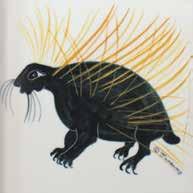
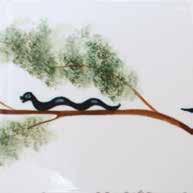


SSpend a night at the Guest House at Field Farm, the Trustees’ B&B in Williamstown, and you’ll find creativity all around you. After a day enjoying all the Berkshires have to offer, curl up by the fire and delight at seeing the unique hand painted tiles by Carol Janeway (1913-1989).
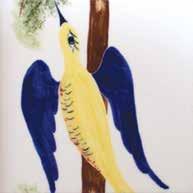

The property’s original owners, Lawrence and Eleanor Bloedel, were avid collectors of modern art and their collection adorns both the interiors of the Guest House and the intriguing Folly and Field Farm’s landscaped gardens. Eleven sculptures—including works by Richard M. Miller, Philip Pavia, and Herbert Ferber— surround the two houses. Inside the 1948 Guest House, you’ll find a veritable museum of mid-century modern furnishings, including Jens Risom chairs and George Nelson saucer pendant lamp in the Greylock bedroom, and a Noguchi coffee table, Vladimir Kagan sofas, and an Eames chair and ottoman in the living room.
But the Janeway tiles are an unexpected highlight. The Guest House has three fireplaces featuring her work, created between 1947 and 1948. The tile surrounds depict Field Farm’s wildlife as well as whimsical portraits of the Bloedel’s pets—an elkhound and a Siamese cat—all, as author Victoria Jenssen describes in a newly published book, The Art of Carol Janeway, as “charmingly comic caricatures in dynamic poses.” And in the Bloedel’s daughter’s bedroom are 18 tiles of butterflies by Janeway.
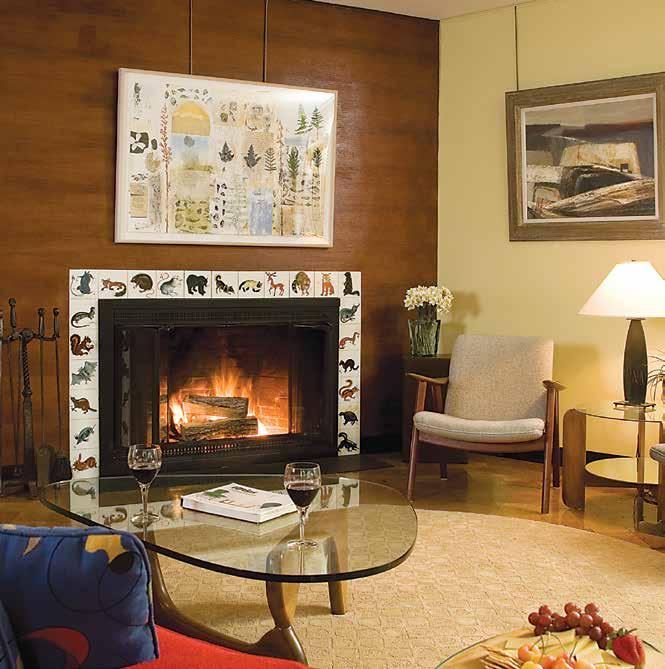

The staff at the Trustees’ Archives & Research Center (ARC) have been excited to assist Jenssen on her book, learning many new details about Janeway who, according to the author, had commercial success as a tile decorator and ceramist in New York in the late 1940s. Jenssen, an art historian and conservator by training, grew
up in a New York City kitchen that featured Janeway tiles. Her curiosity about the tile maker led to a deep dive into Janeway’s life which ultimately led to this new book.
ARC staff are not certain how the Bloedels discovered the artist when building this house—perhaps they attended her exhibit at New York’s Museum of Modern Art or were taken by a 1945 issue of Life Magazine which devoted a three-page photo spread to Janeway and her tiles. One aspect we do know is that the Guest House’s architect, Edwin Goodell Jr., left clear instructions in his plans, found in
our archives, that “All facings to be 6”x 6” tile furnished by owner.”
The ARC is pleased to have been able to support Jenssen’s research work and that her more than ten-year effort has at last been published. We are honored to be able to tell the stories, along with our incomparable curatorial team, of Field Farm, the Bloedel family, and of the artists like Carol Janeway whose work is showcased at this very special place.
Over his more than two decades with the organization, Associate Curator Mark Wilson has worked with nearly every Trustees property in some capacity—overseeing preservation, restoration, and archiving projects to benefit the stewardship of our statewide collections, historic homesteads, and public gardens, as well as the curation and interpretation of countless exhibitions. Based in Stockbridge, he manages the collections and restoration and conservation projects for Ashintully Gardens, Ashley House, Field Farm, The Mission House, Naumkeag, and the William Cullen Bryant Homestead.
Among his work in recent years, Mark oversaw the immense, multi-year restoration of the house and gardens at Naumkeag. In just the past several years, he has worked to strengthen The Trustees’ relationship with the Stockbridge-Munsee Band of the Mohican Tribe. He helped them bring their Mohican Miles exhibit to The Mission House, providing a space the Tribe can call their own and help promote Indigenous history in the area. In addition, he recently completed the full repatriation of every cultural heritage object originally acquired in 1931 by Mabel Choate to the Mohican Tribe, an immense milestone that has been in the works for nearly 20 years.
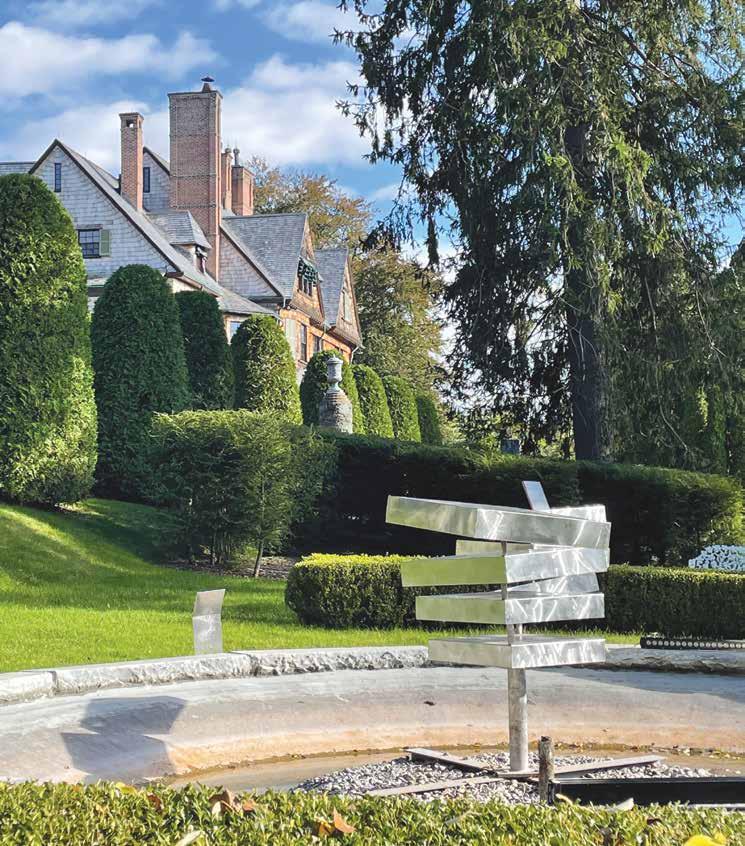
Most recently, Mark was the driving force behind the conception, installation, and interpretation of ViewEscapes at Naumkeag, one of the largest-ever exhibitions to feature the work of the late renowned artist and kinetic sculptor, George Rickey. He worked closely with the artist’s studio and estate to ensure the success of this historic exhibition, selecting the ideal locations in both the landscape and the house to display more than 20 of Rickey’s sculptures and other artworks. To Mark’s credit, ViewEscapes was a significant contributor to the record-breaking attendance at Naumkeag last summer.
Described as “a walking encyclopedia of Trustees history and collections,” Mark is highly regarded statewide for his soft-spoken, humble nature as well as his expertise and willingness to step outside of his curatorial duties at any given moment. Whether stepping in to help to prepare Naumkeag for special events or working
behind the scenes with local leaders to strengthen the organization’s connection with the community, his commitment to his colleagues and The Trustees’ mission is unequaled. The organization is delighted to recognize Mark’s devoted service and outstanding accomplishments by naming him Employee of the Year for 2022.

Field Farm 1
WILLIAMSTOWN
Earth Day Guided Hike, Eco Walks, Forest Bathing, Birding, Nature Photography
Bear Swamp 2
ASHFIELD
Birding, Eco Walks
Bullitt Reservation 3
ASHFIELD & CONWAY and Chapel Brook 4
ASHFIELD
Guided Bullitt to Chapel Brook hikes
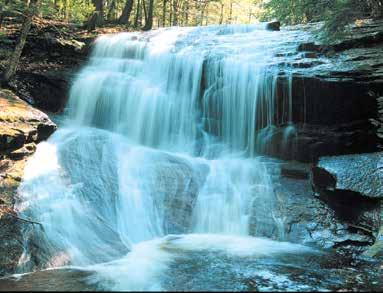
Chesterfield Gorge 5
CHESTERFIELD
Eco Walk, Forest Bathing, Fly Fishing
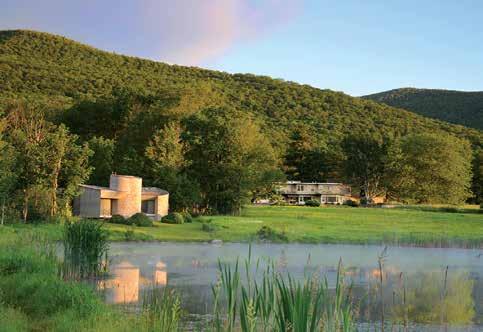
Notchview 6

WINDSOR
Earth Day Guided Hike, Full Moon Hikes, Fly Fishing, Birding, Full Moon Campout
William Cullen Bryant 7 Homestead
CUMMINGTON
Old Growth Forest Walks, Forest Bathing
Mount Warner 8 NORTH HADLEY
Cape Cod and Islands
Vernal Pool hike, Birding, Yoga in Nature
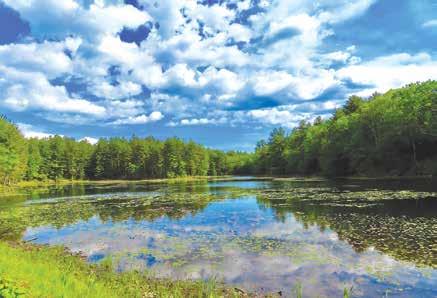
Peaked Mountain 9
Full Moon Hikes
Tully Lake Campground 10
Earth Day Guided Hike, Camping 101, Paddling trips, Fishing Clinic, Families in Nature programs
THE CHARLES RIVER VALLEY
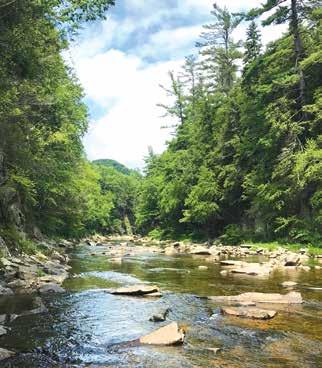
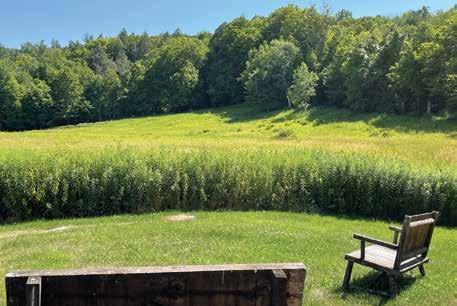
The Trustees is excited to bring new outdoor recreational program experiences to ten reservations across Central MA, the Pioneer Valley, and the Berkshires this spring and summer. Through an exciting partnership with Adventure East, look for camping clinics, forest bathing, yoga, nature photography, guided birding hikes and paddling adventures, as well as fly fishing and ecology hikes, at these highlighted reservations. See thetrustees.org/ outdooradventures for details, schedules, and to register.

“Clouds like the petals of a rose, Open slowly and disclose The golden heart of the moon; The waves grow soft upon the sand, The wind dies down upon the land, Beauty and silence weave a tune Out of the petals of the moon.”

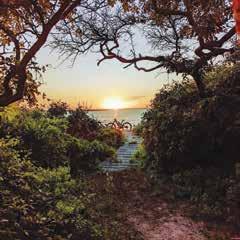 –
–
Alice Corbin Henderson find magic in the moment
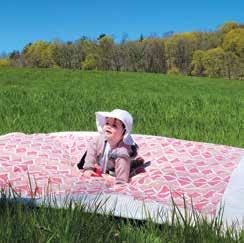
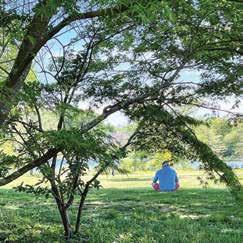

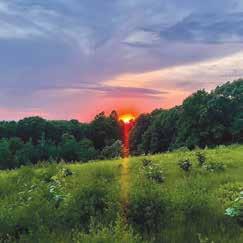

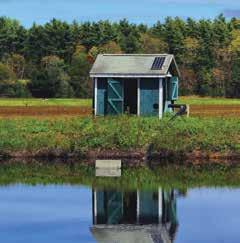


The Trustees is Massachusetts’ largest, and the nation’s first, conservation and preservation nonprofit. We are supported by members, friends, and donors. Explore more than 120 amazing places across Massachusetts, from beaches, farms and woodlands, to historic homes, museums, urban gardens, and more.

We invite your input, letters, and suggestions. Please send them to:
Special Places | The Trustees 200 High Street, 4th Floor Boston, MA 02110 tel 978.921.1944 email marketing@thetrustees.org
For information about becoming a Member please contact us at 978.921.1944, email us at membership@thetrustees.org, or visit our website at thetrustees.org.
If you need to find your Member code, account information, or look up ticket and registration status for specific programs, visit thetrustees.org/customerservice

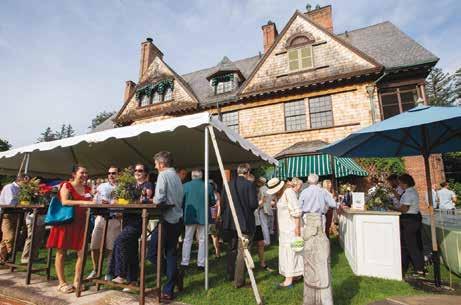
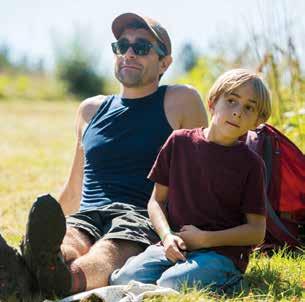
Special Places, Spring 2023. Volume 31, Issue Number 1. Special Places (ISSN 1087-5026) is published quarterly and distributed to members and donors of The Trustees of Reservations.

